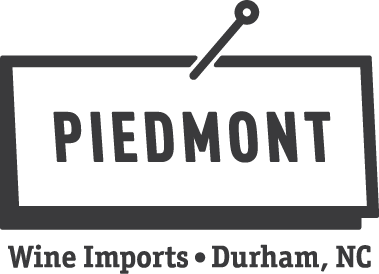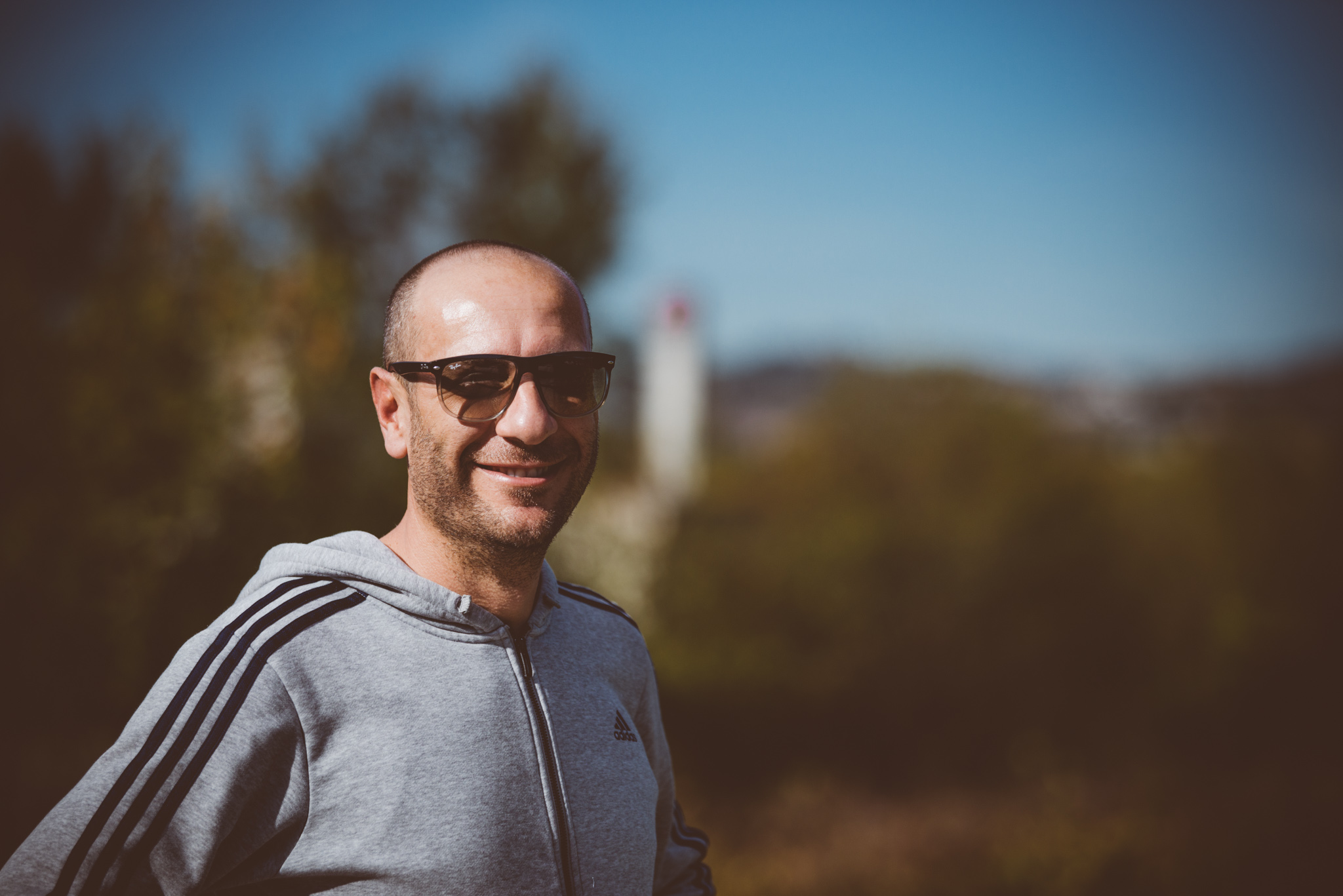
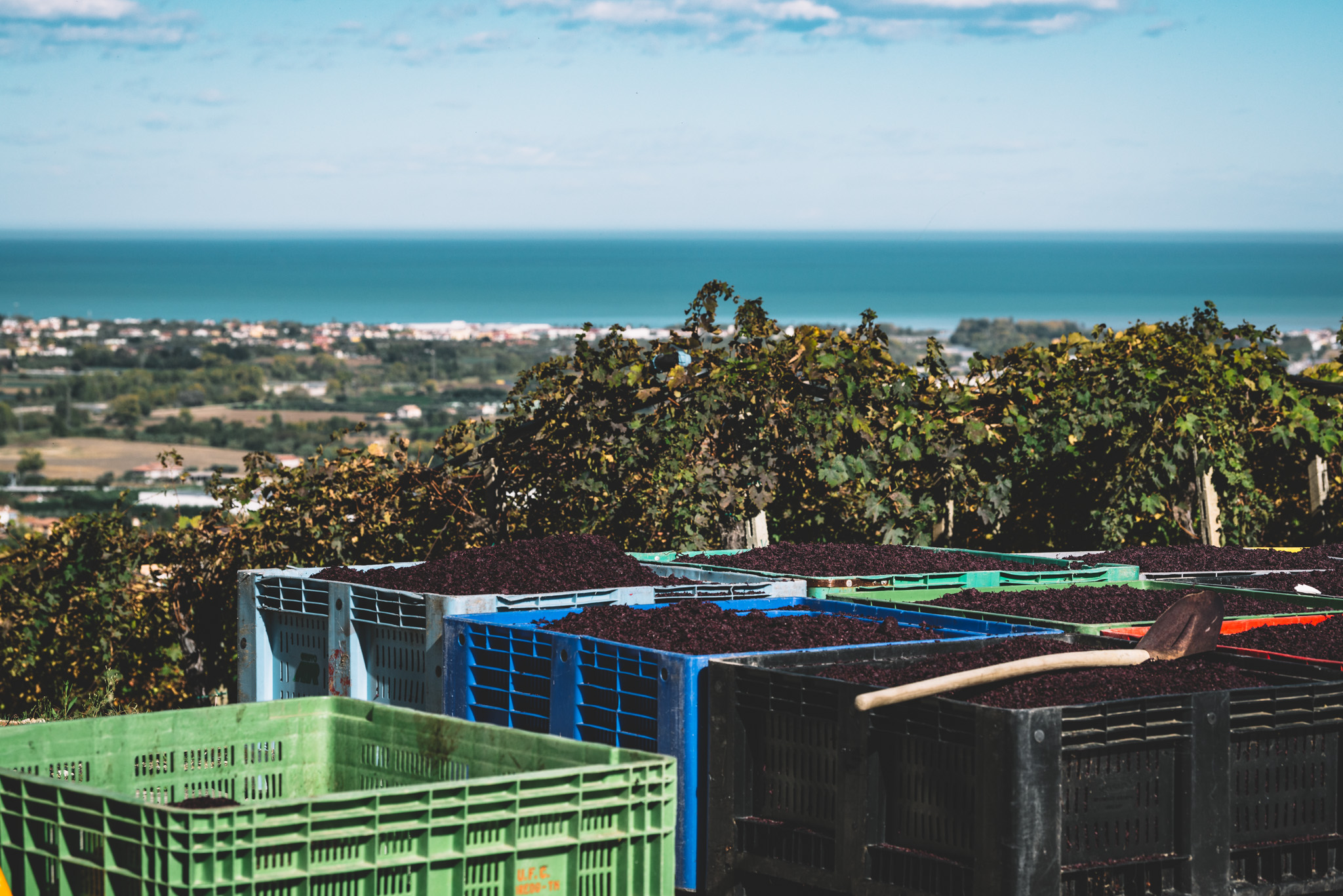
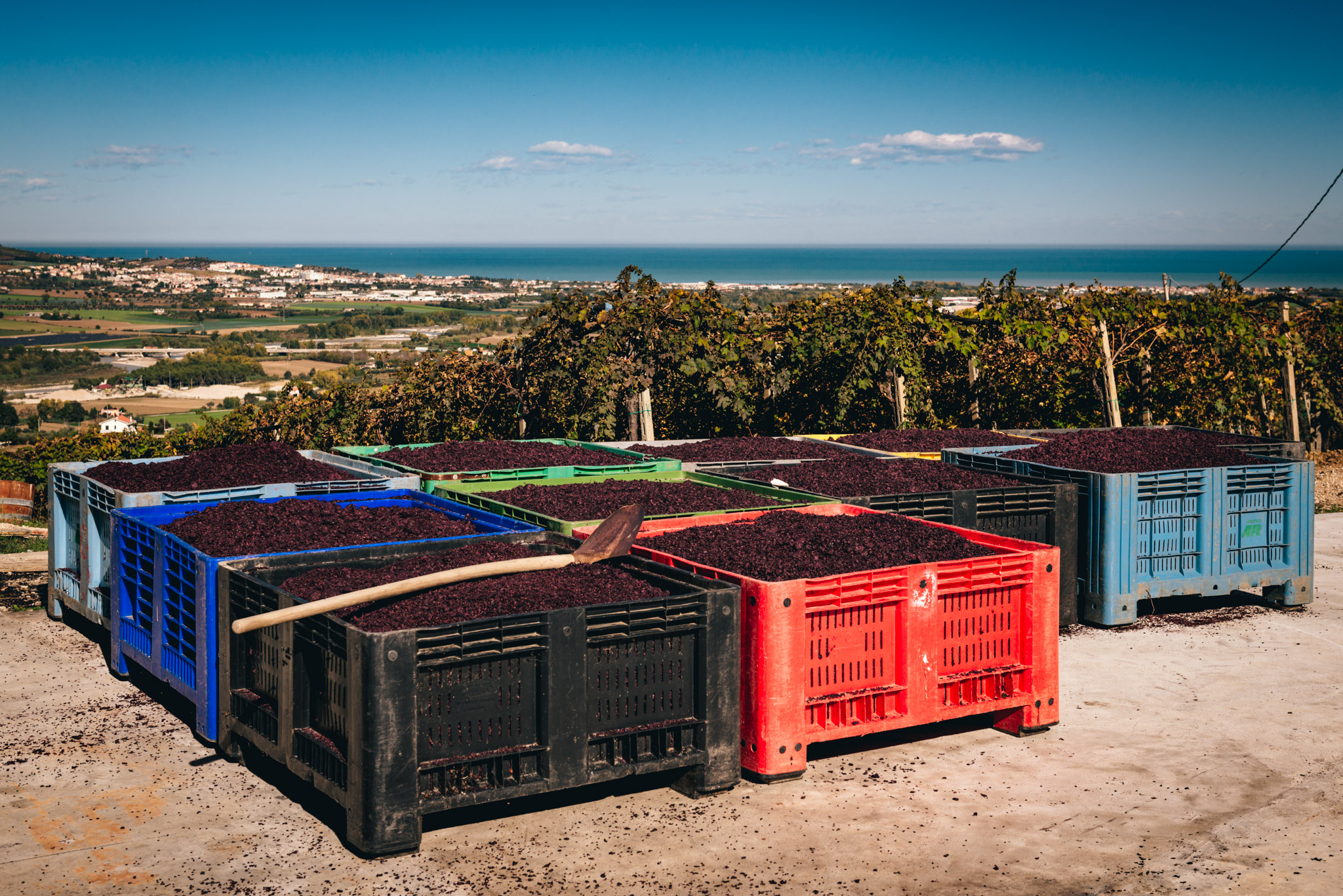
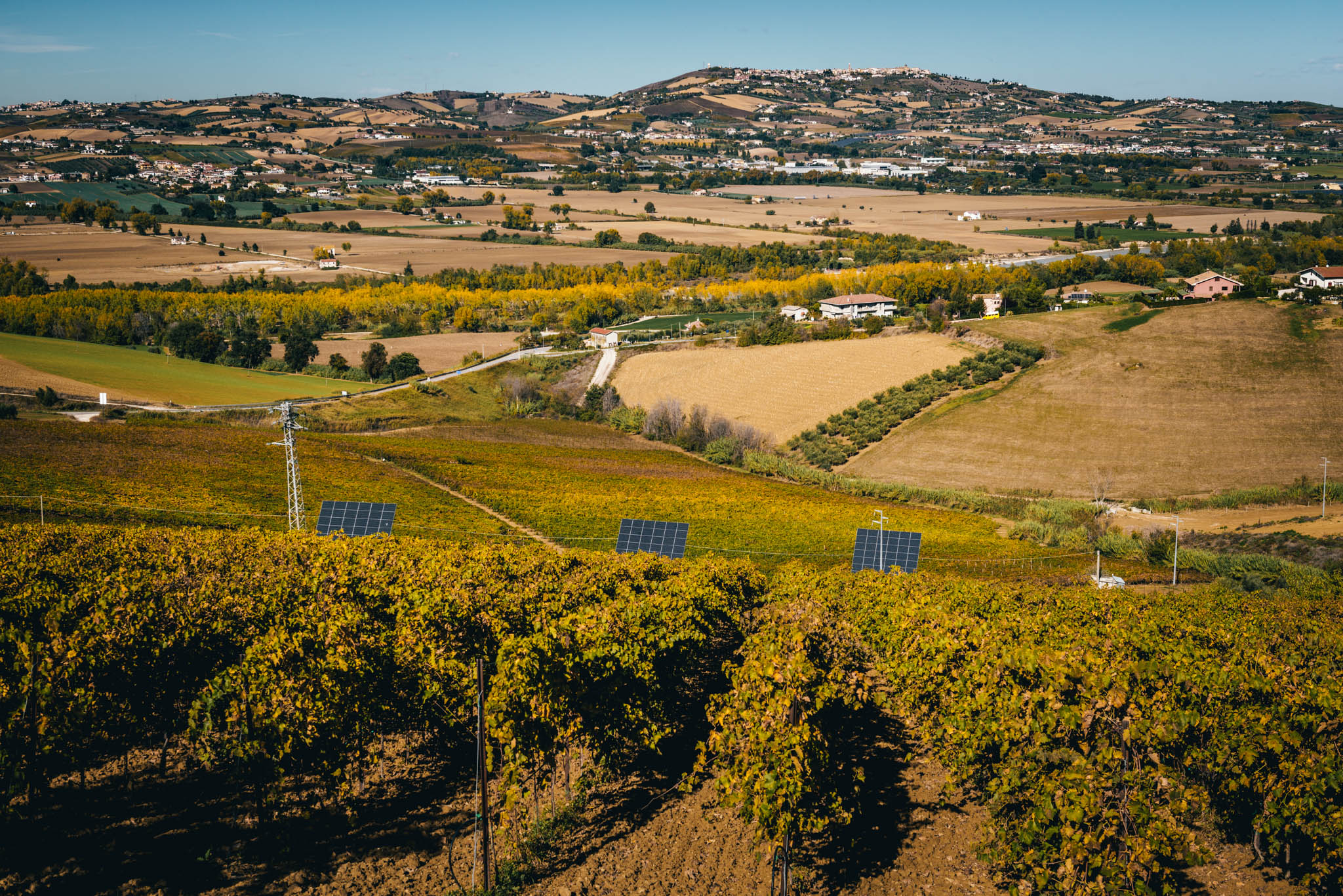

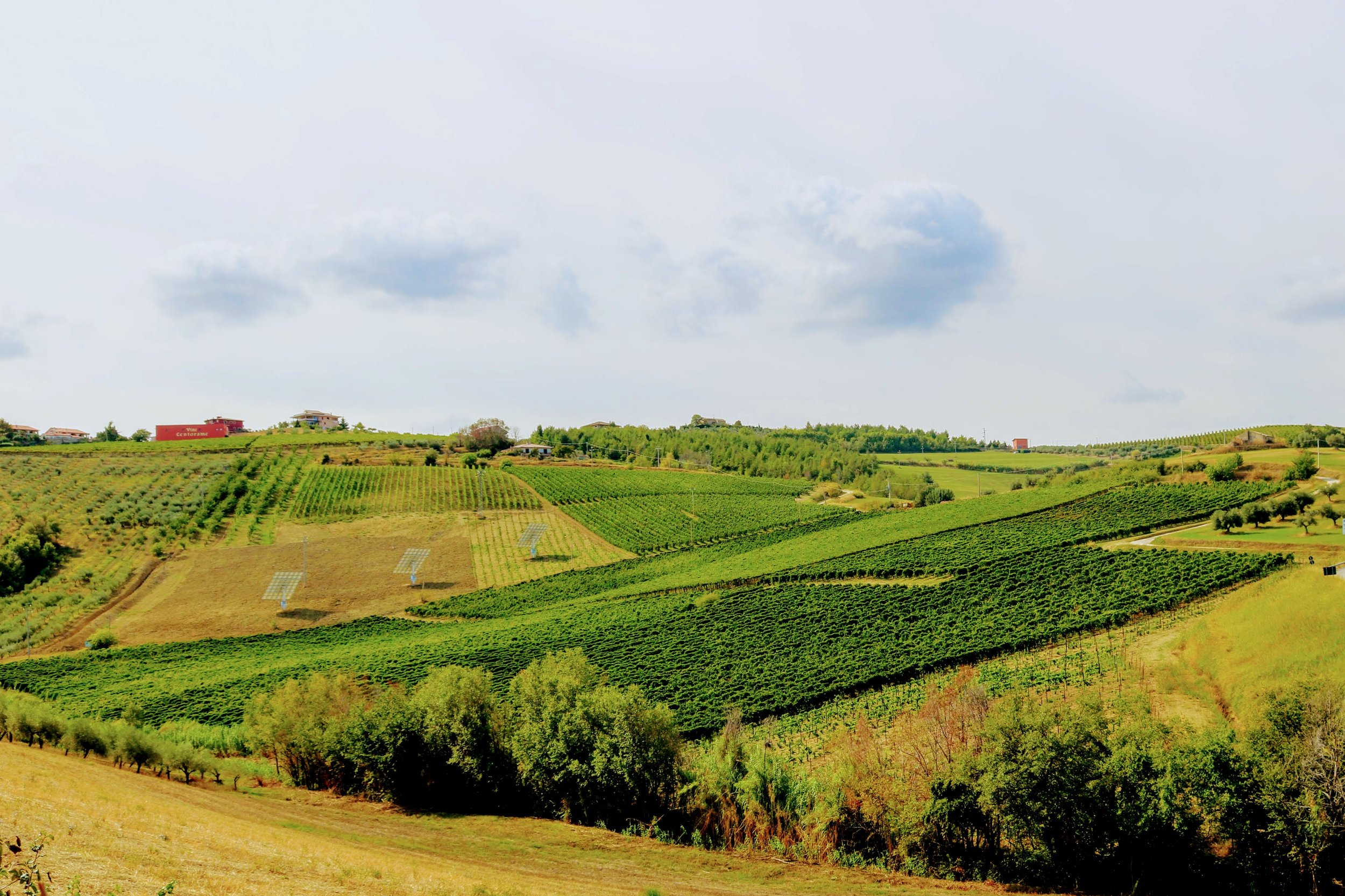
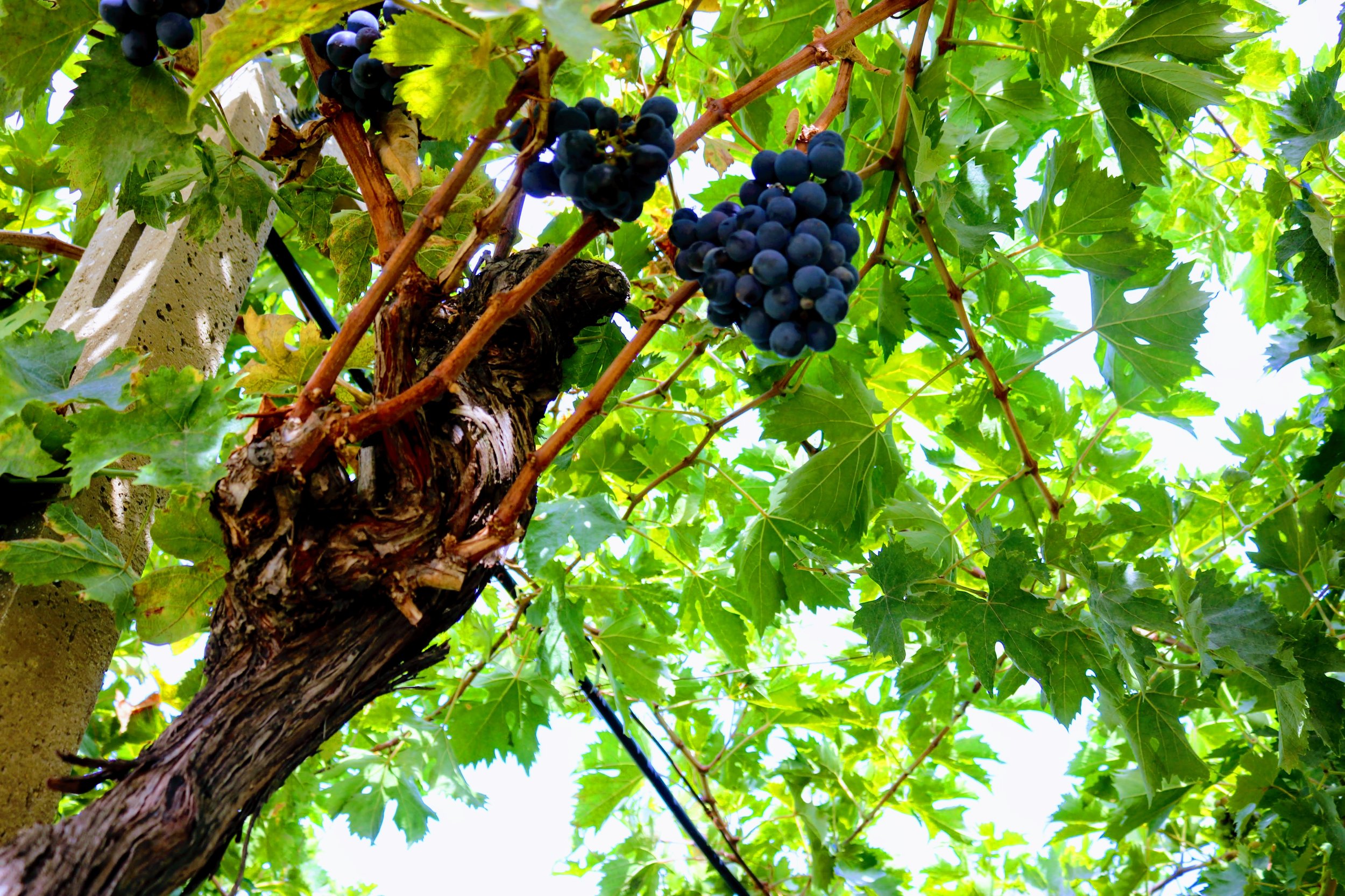
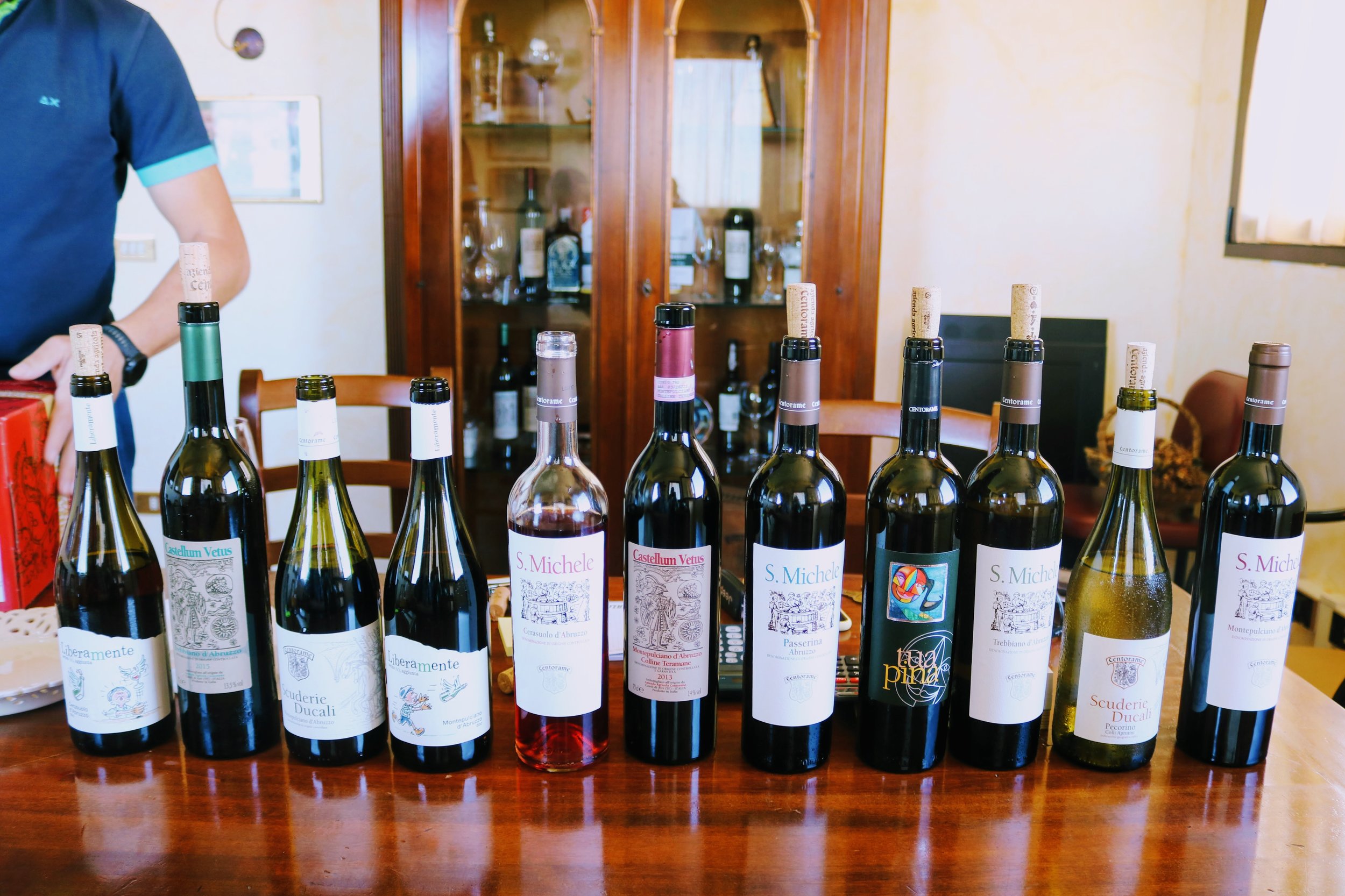
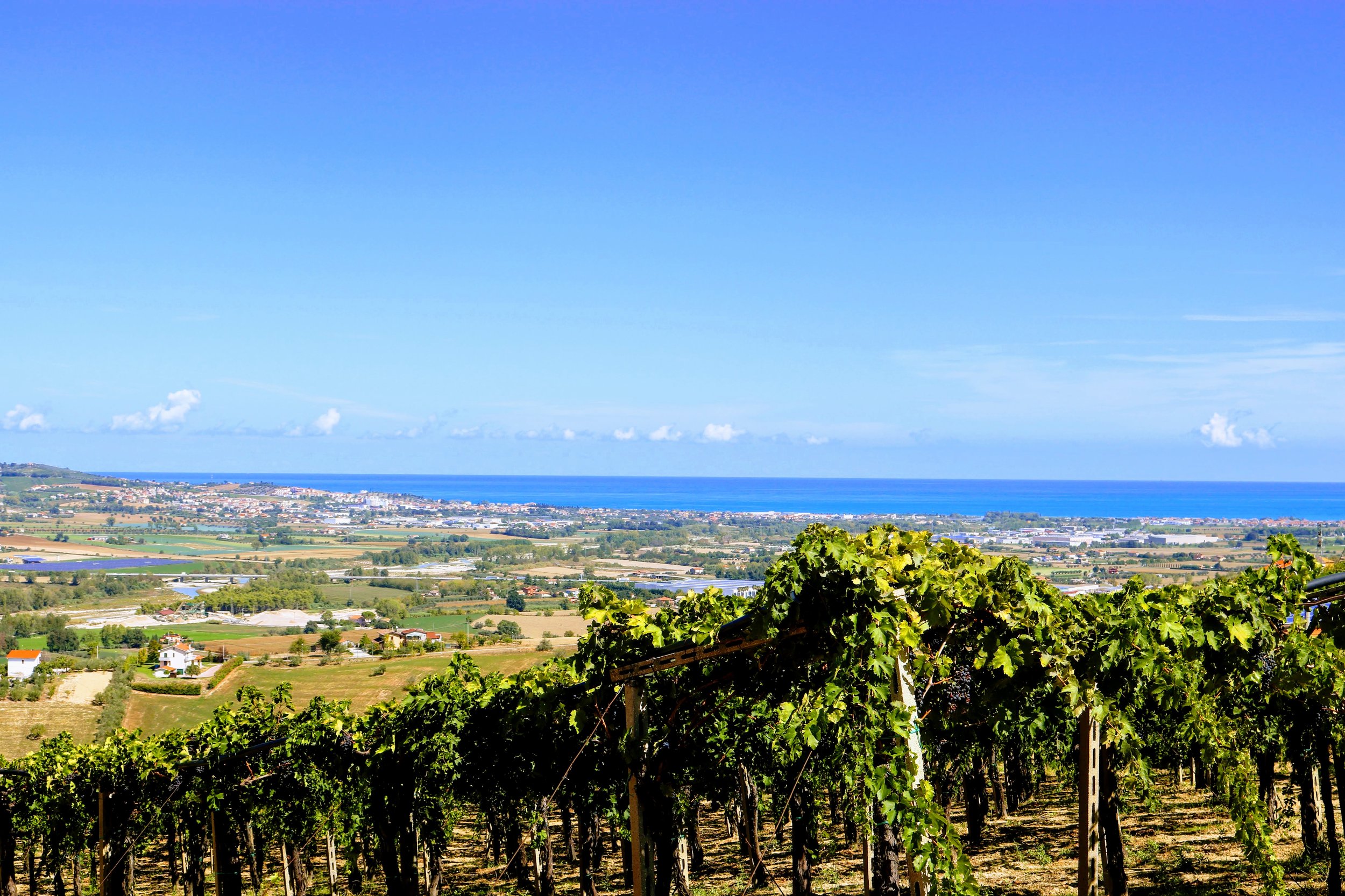
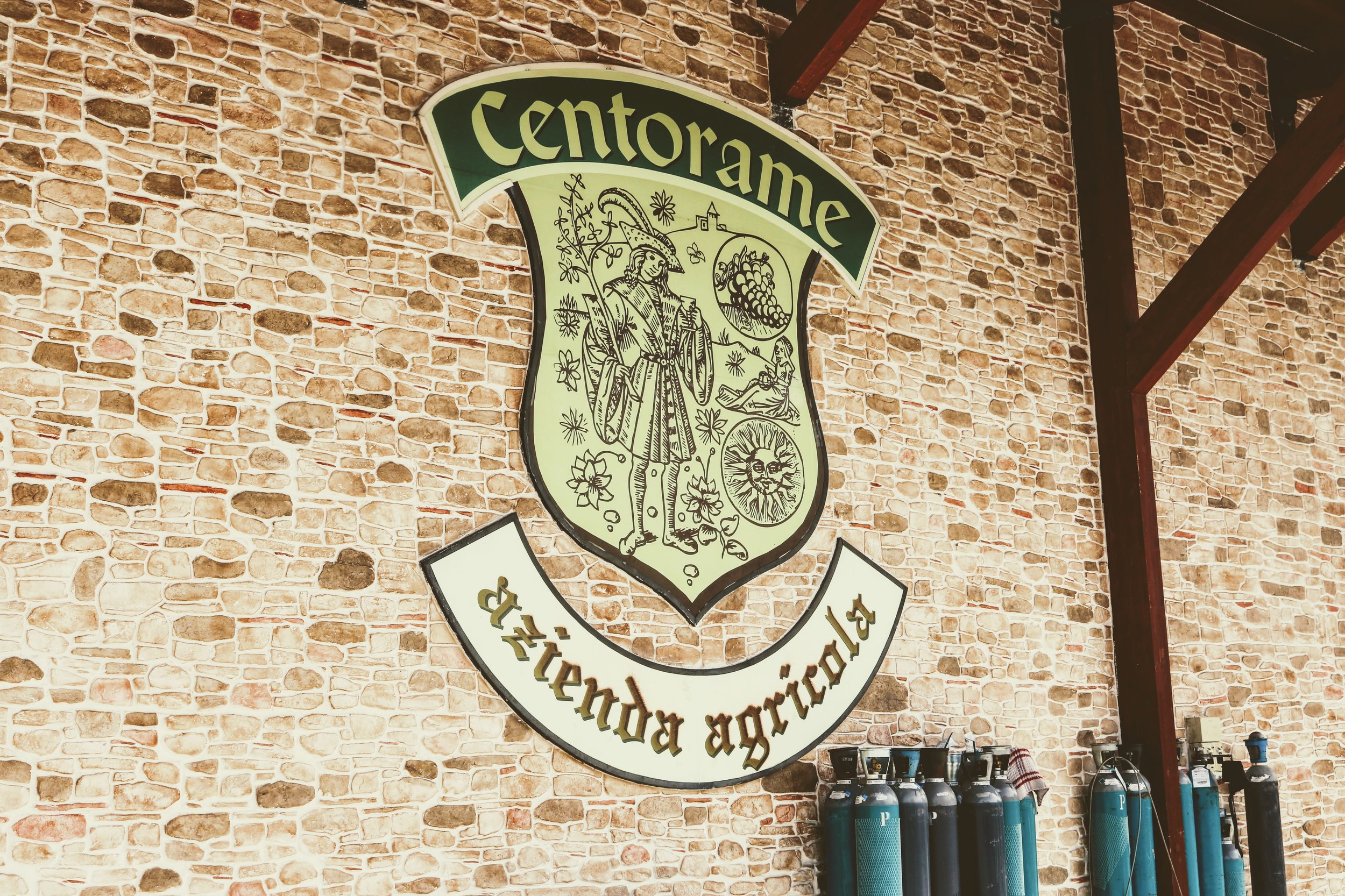

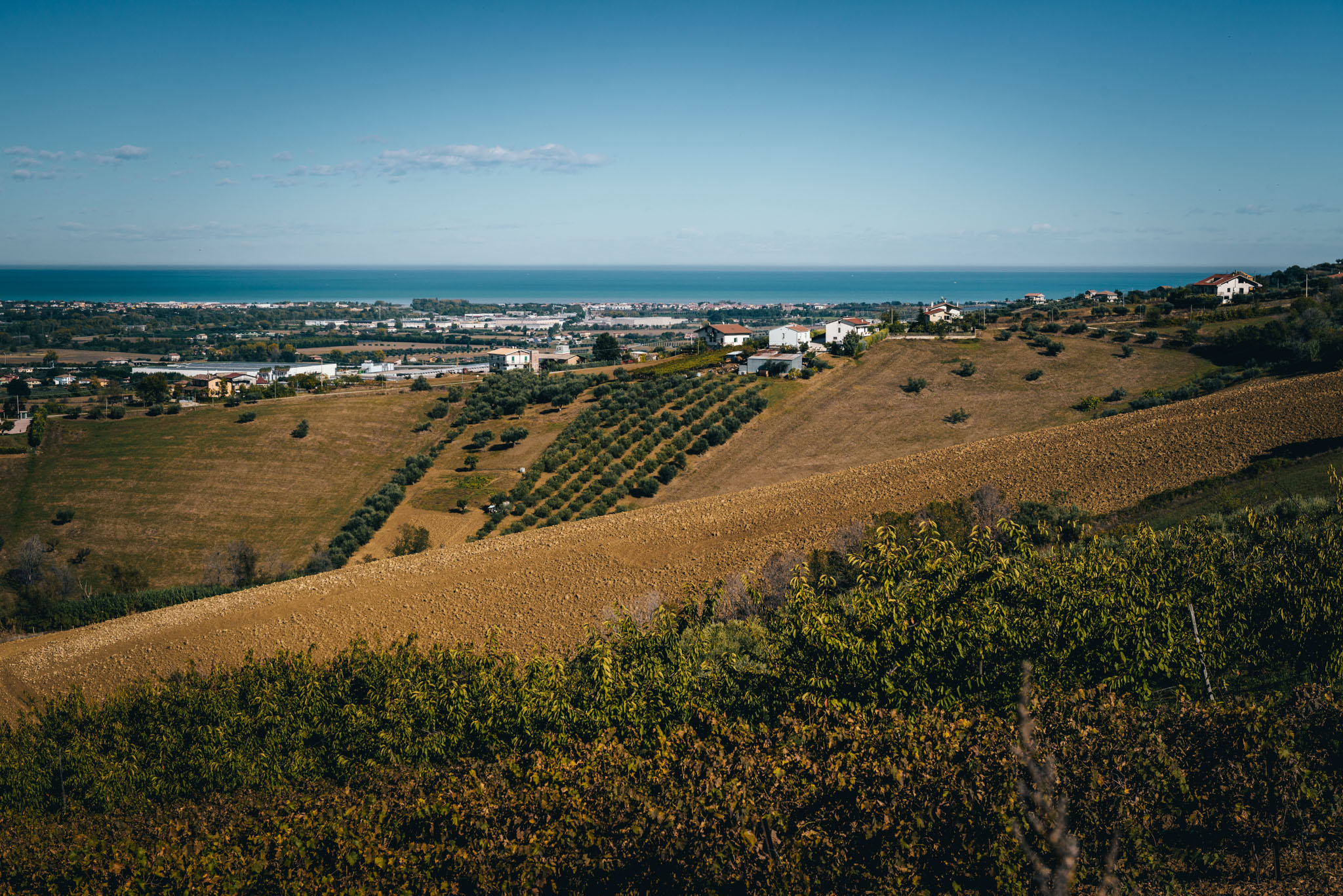

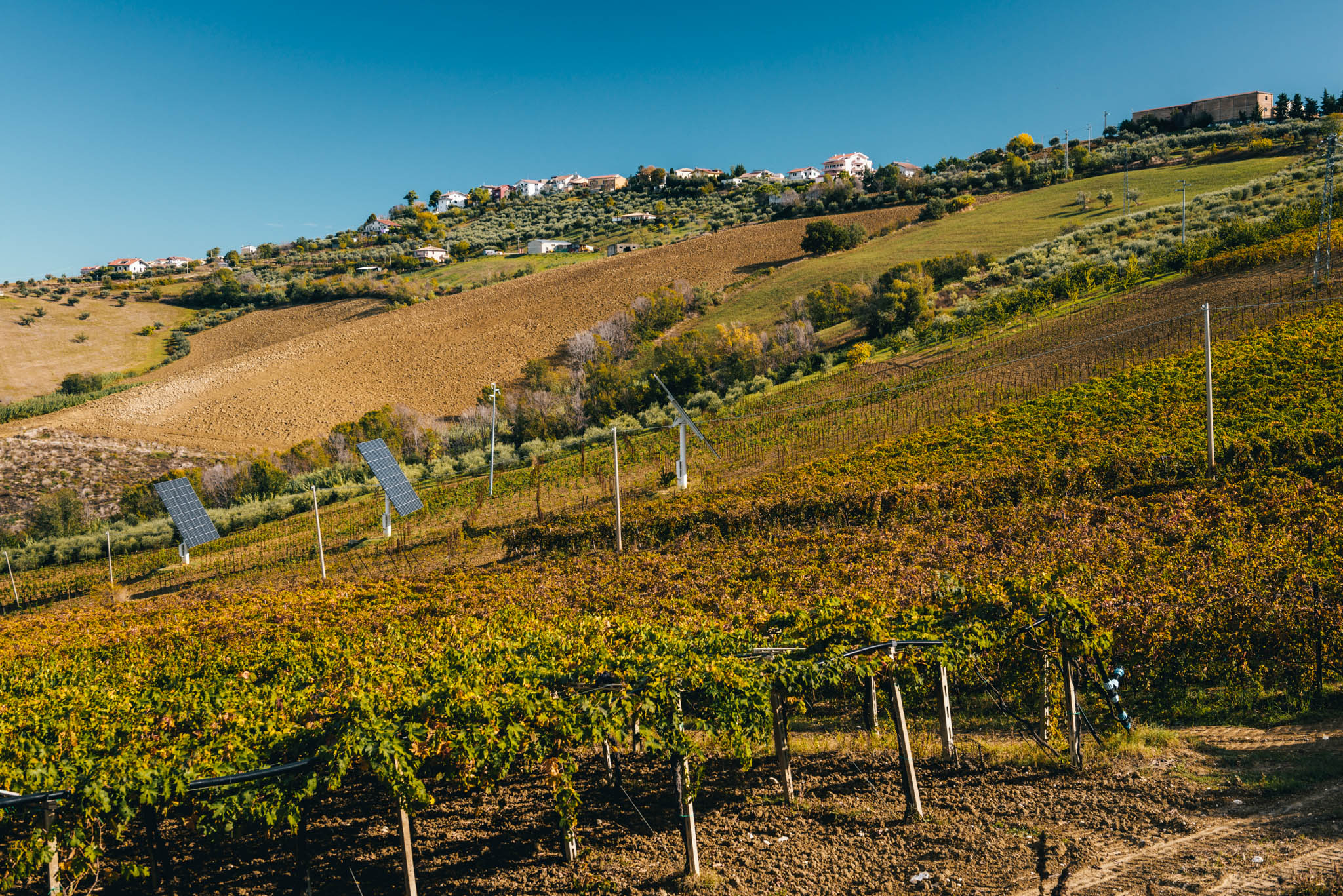
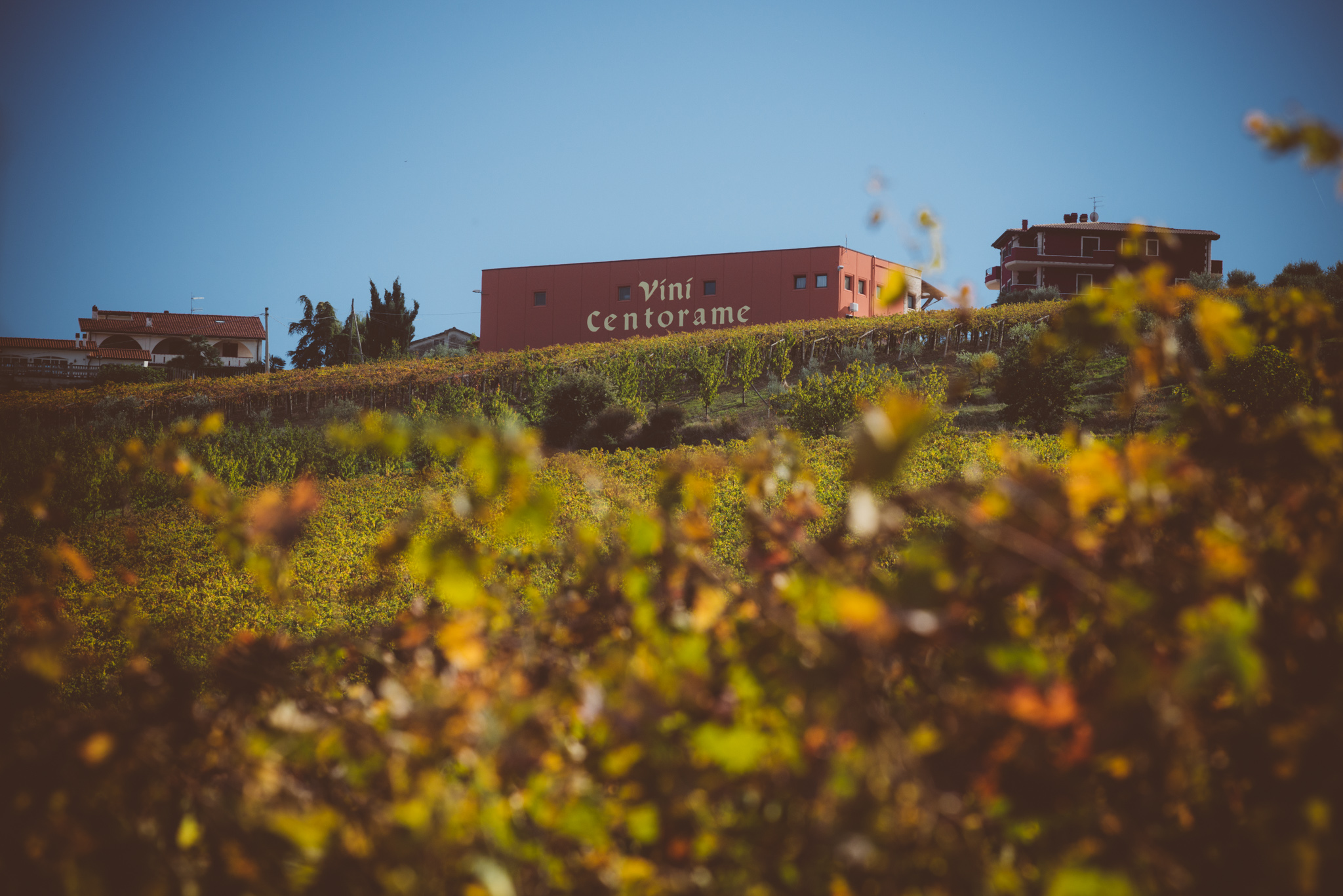
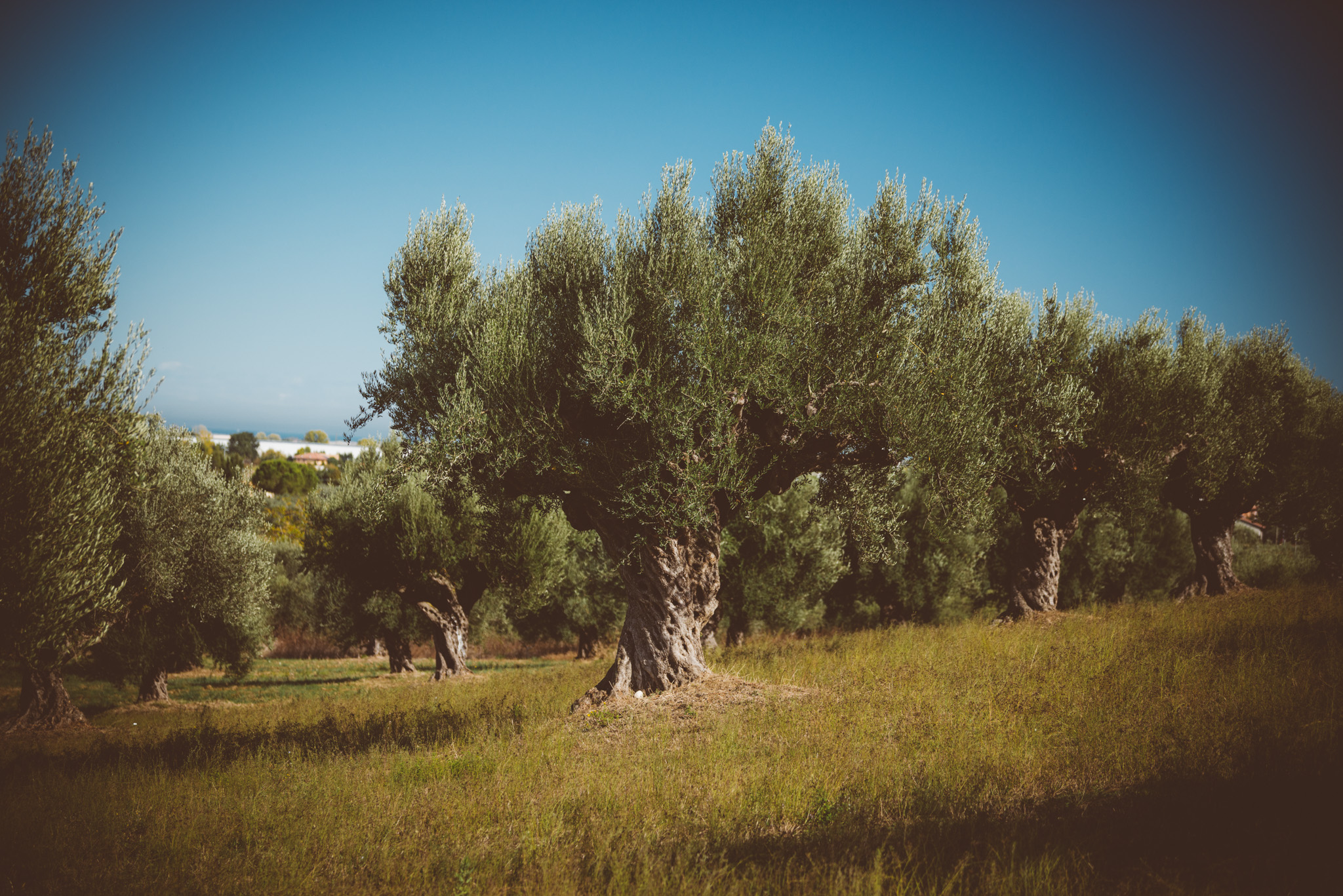
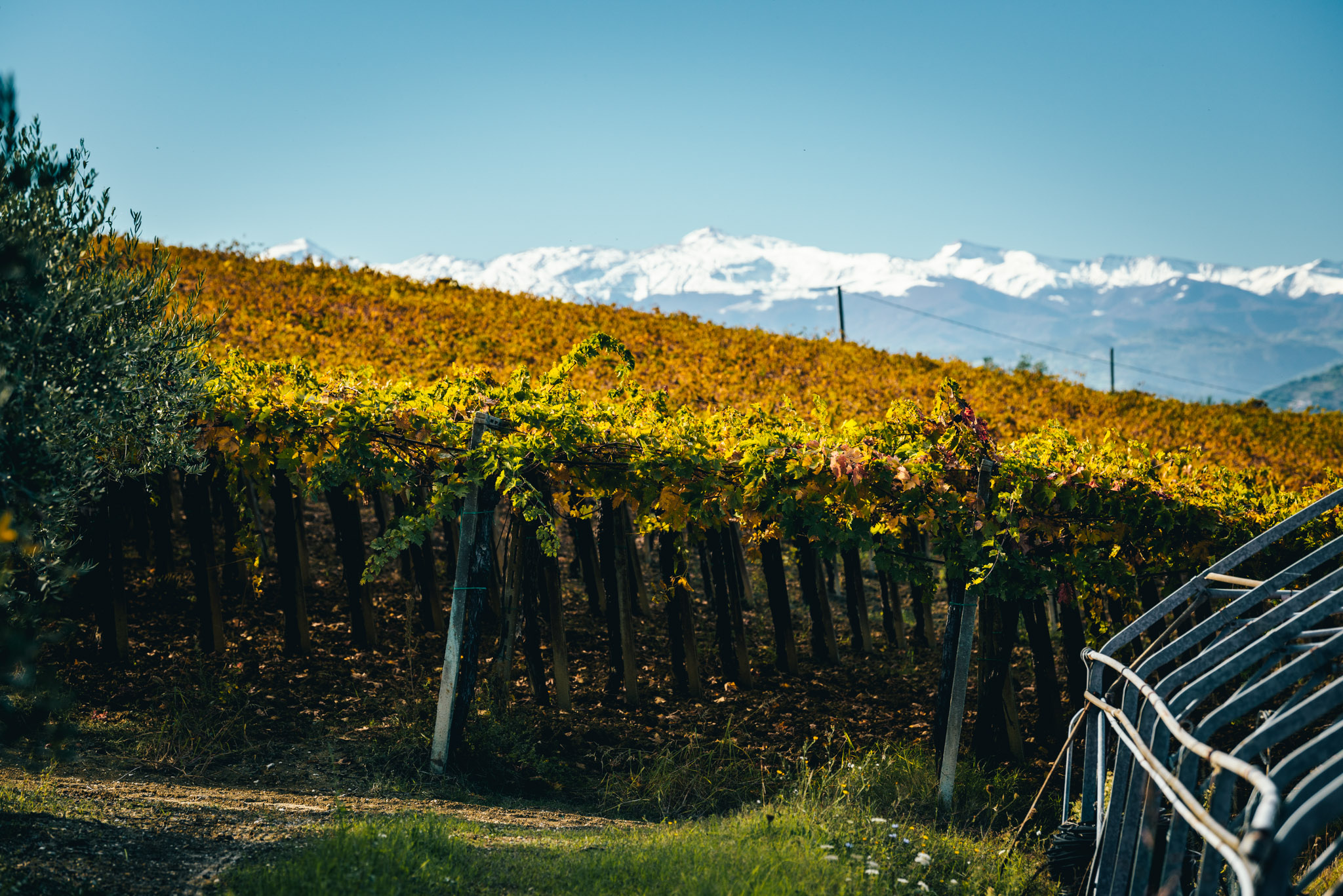
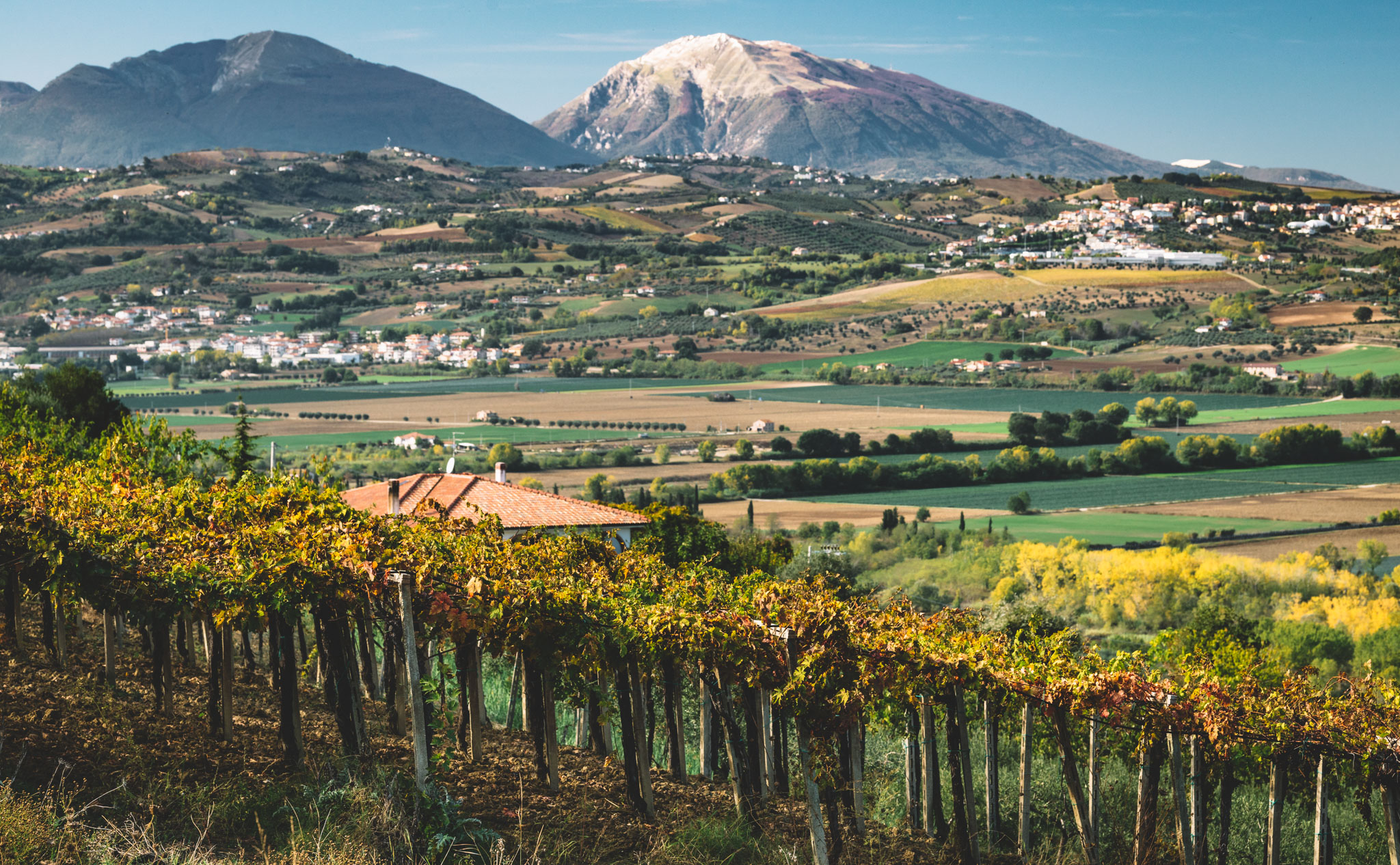
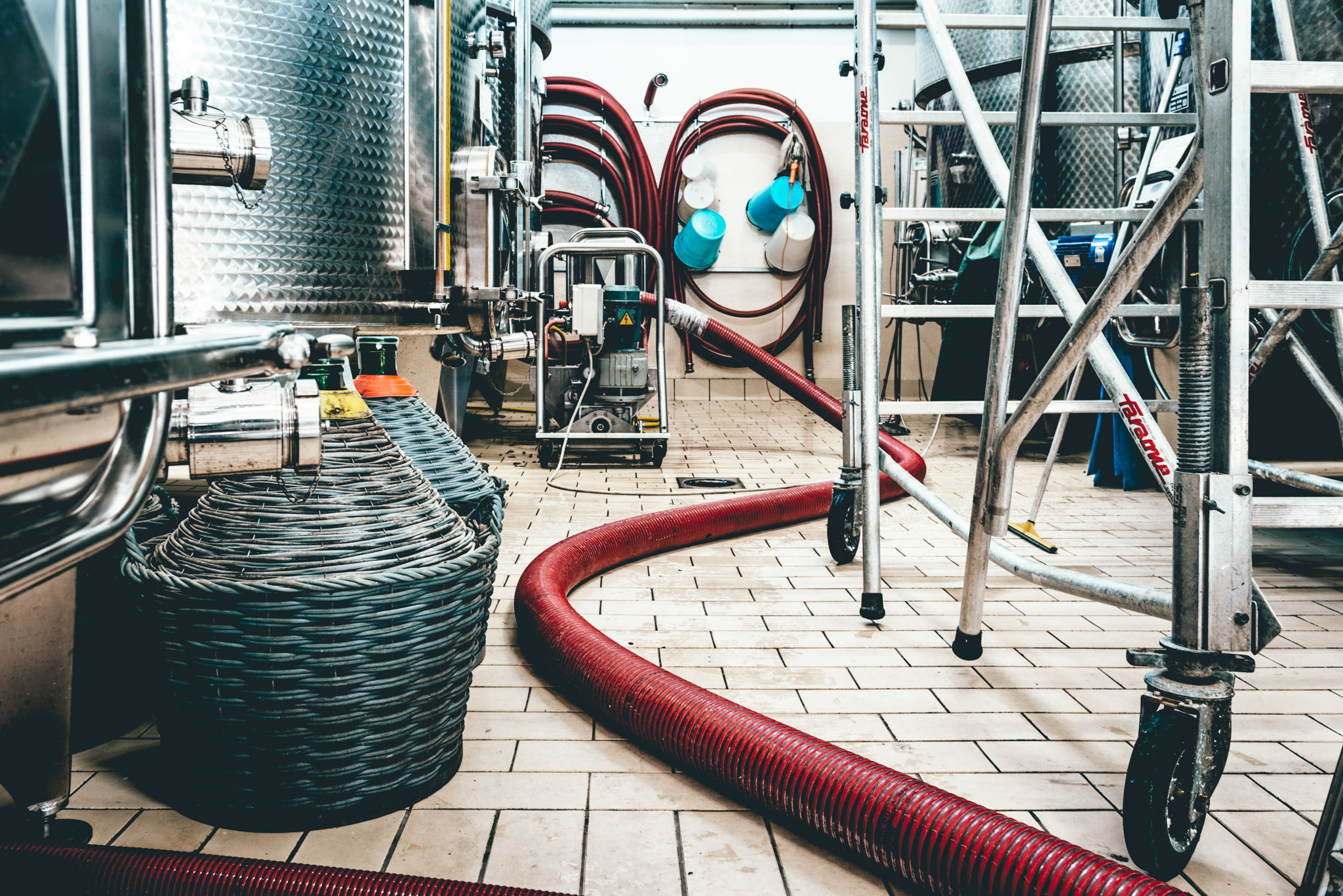
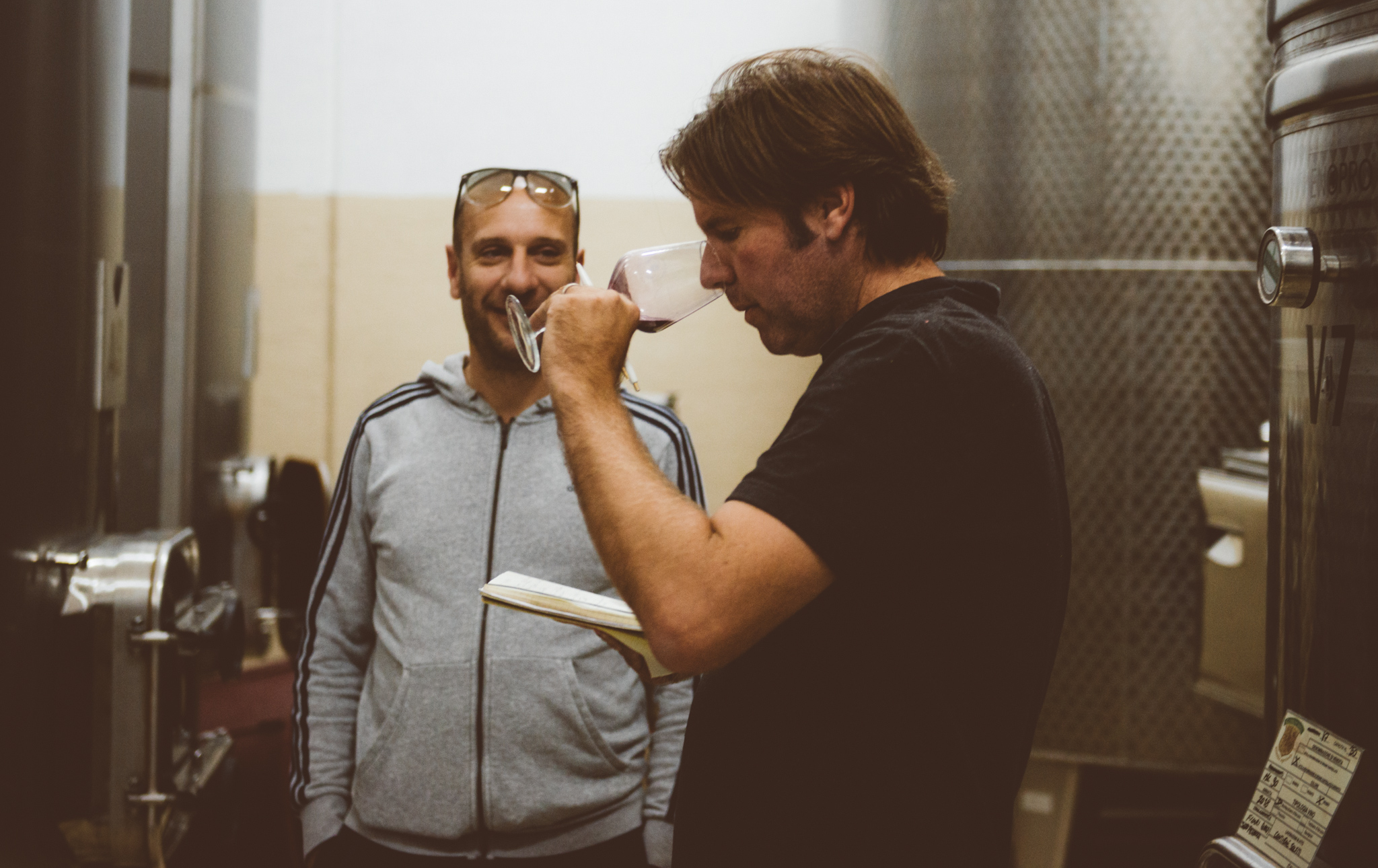
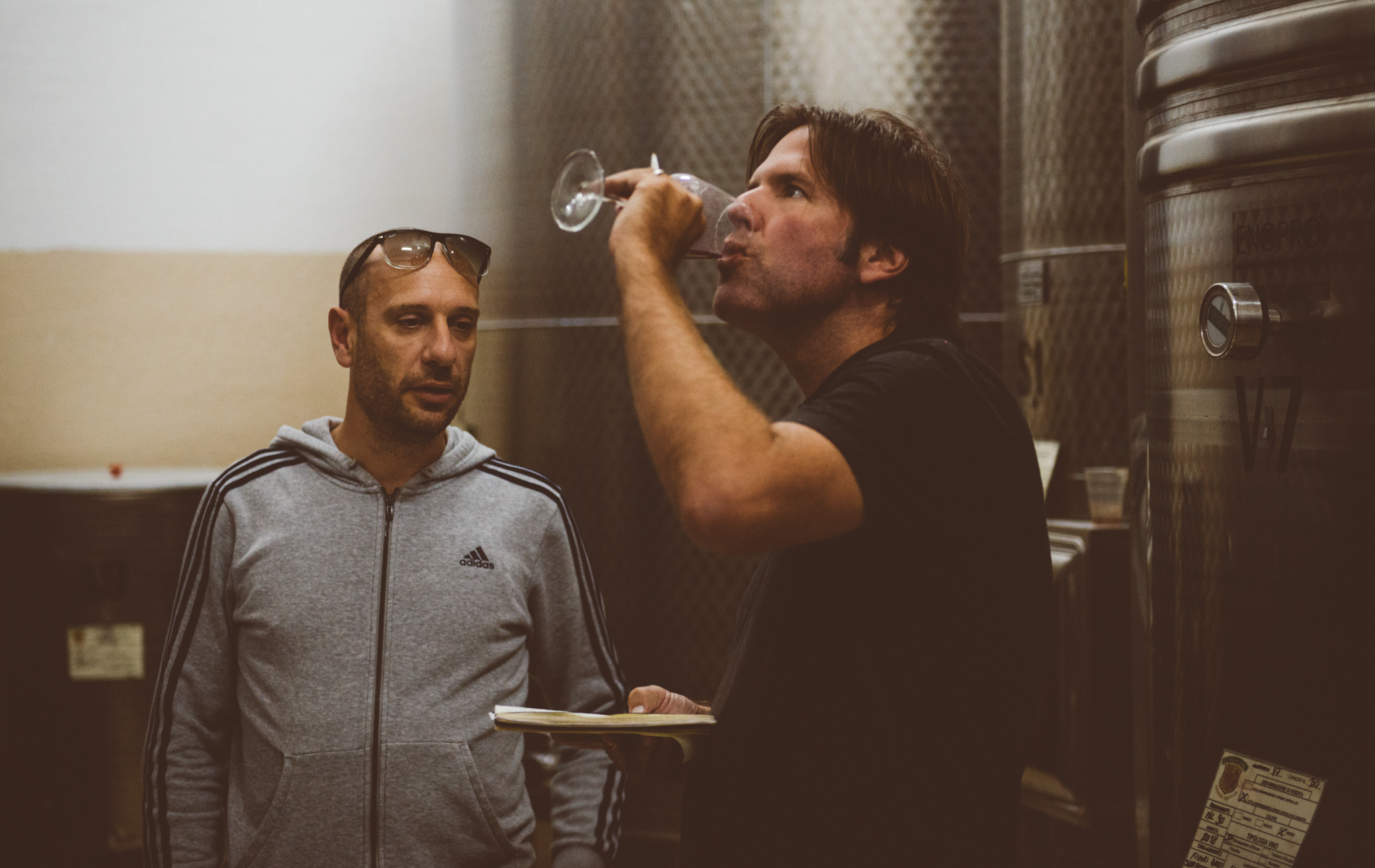

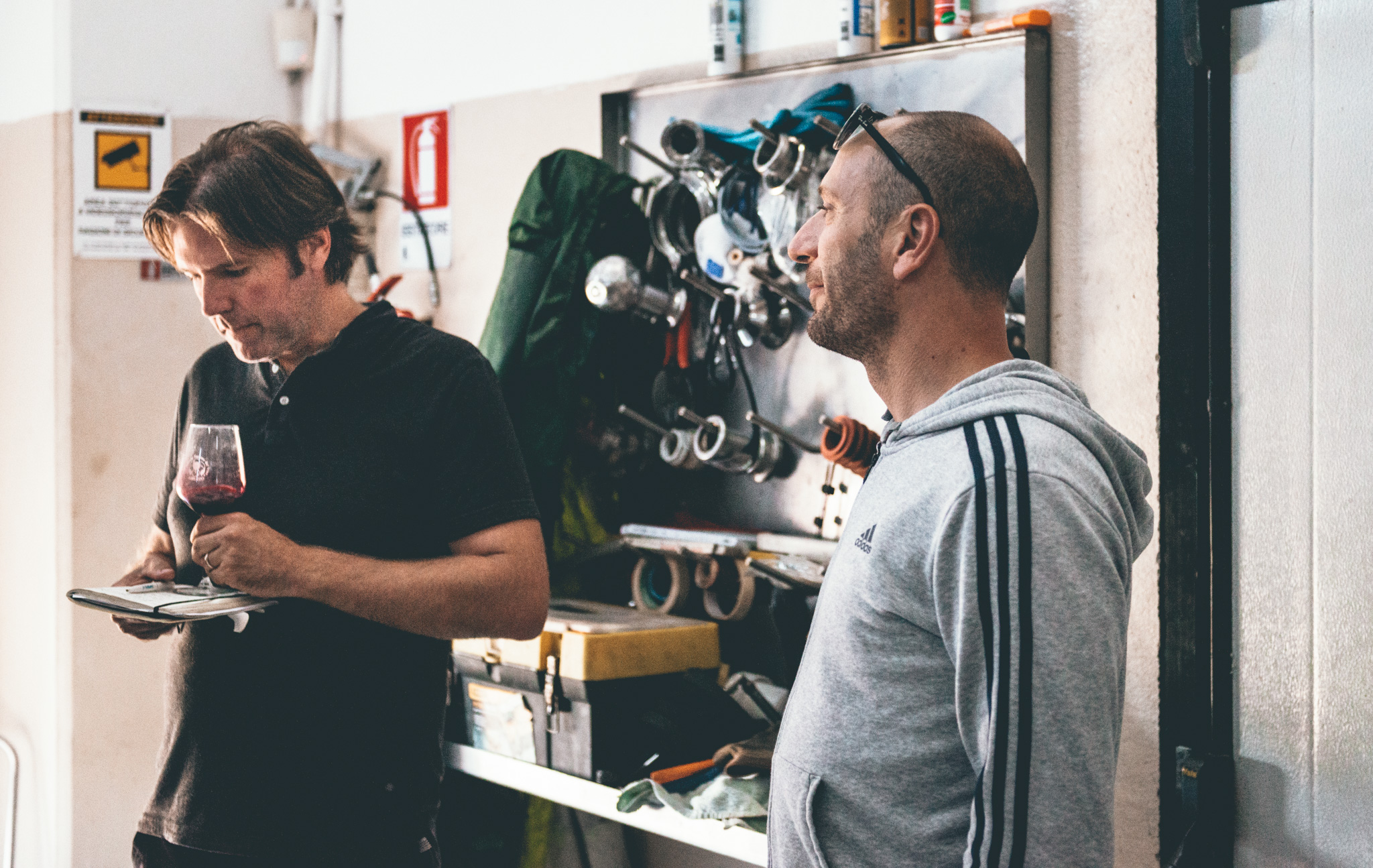
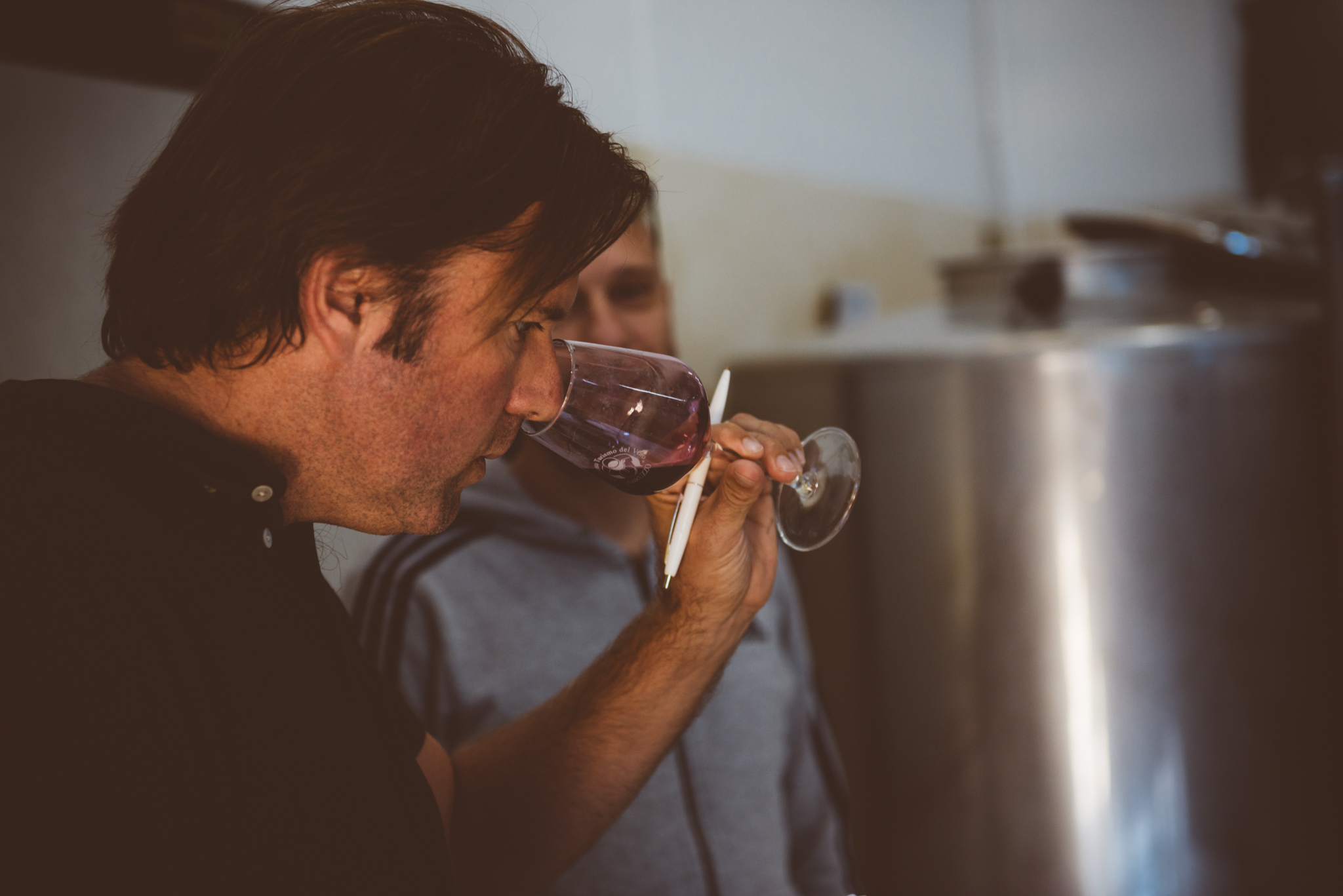
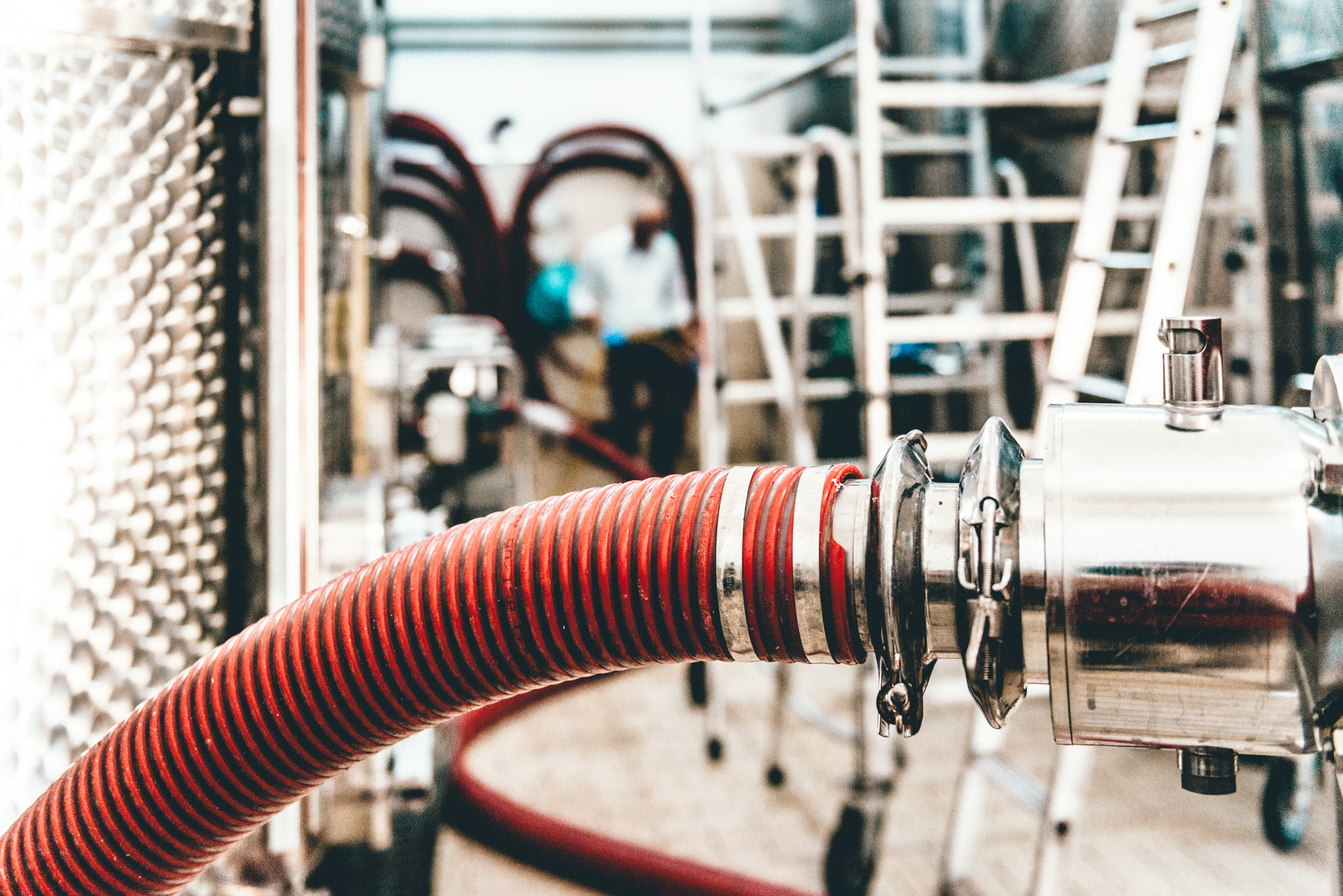
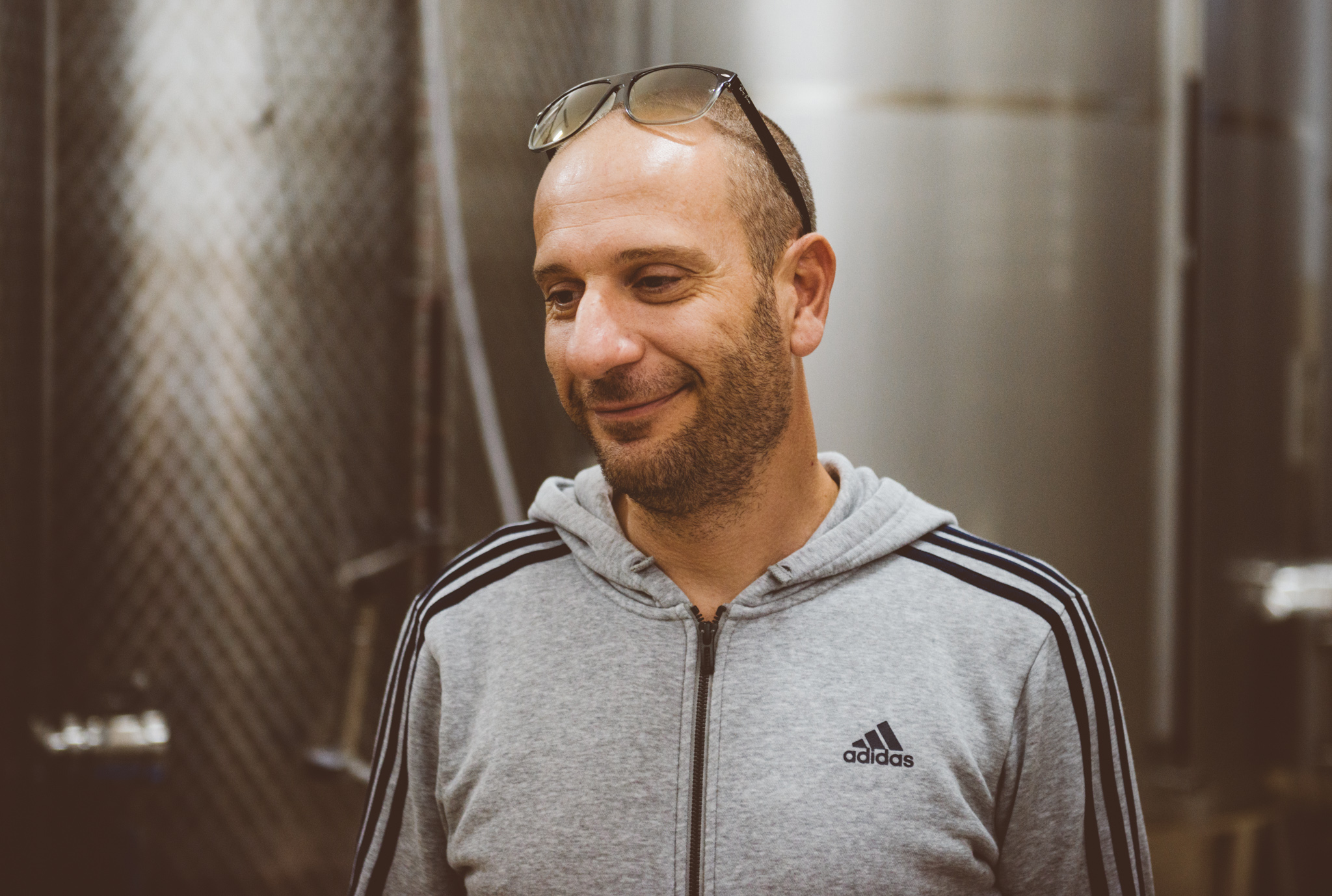
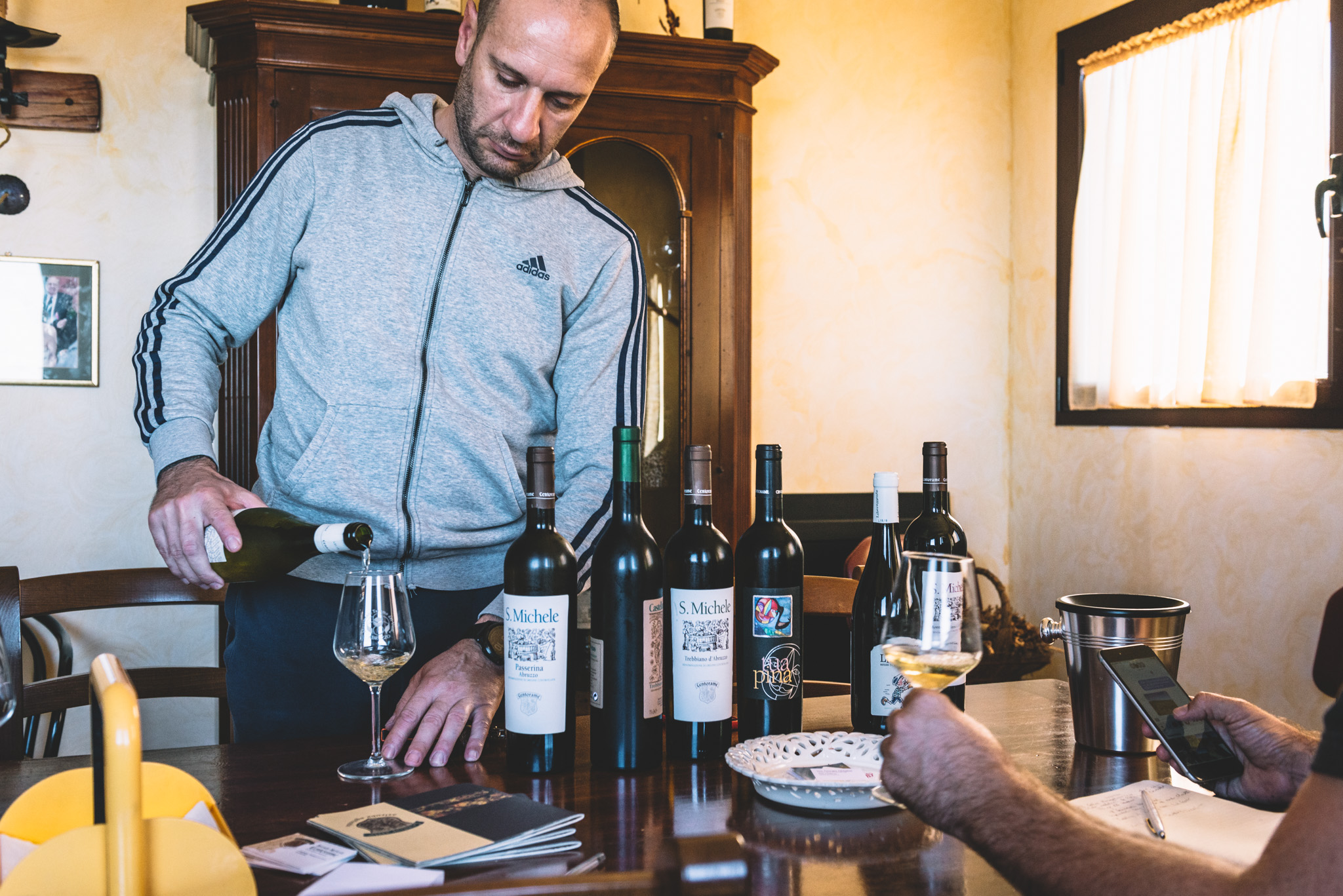
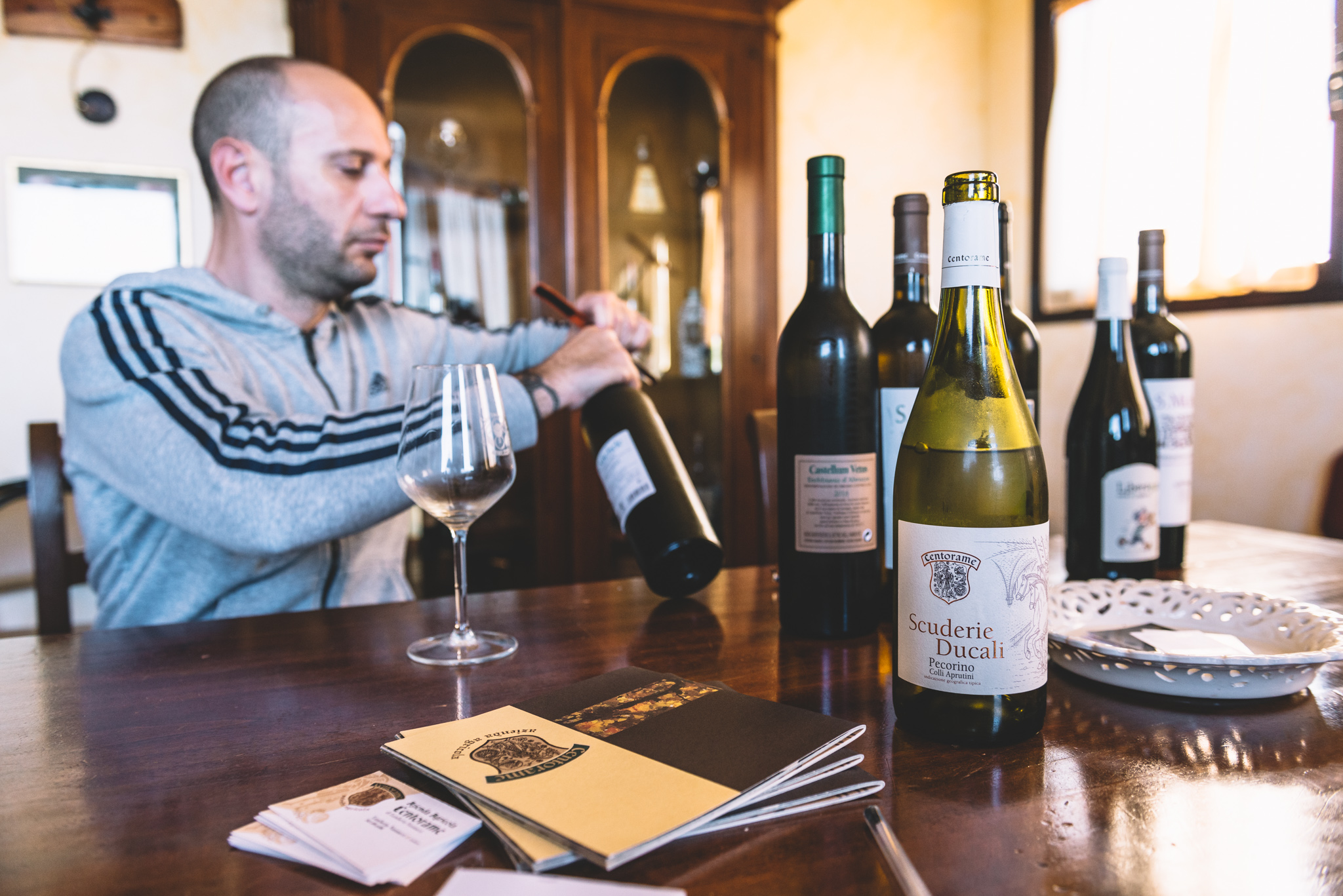
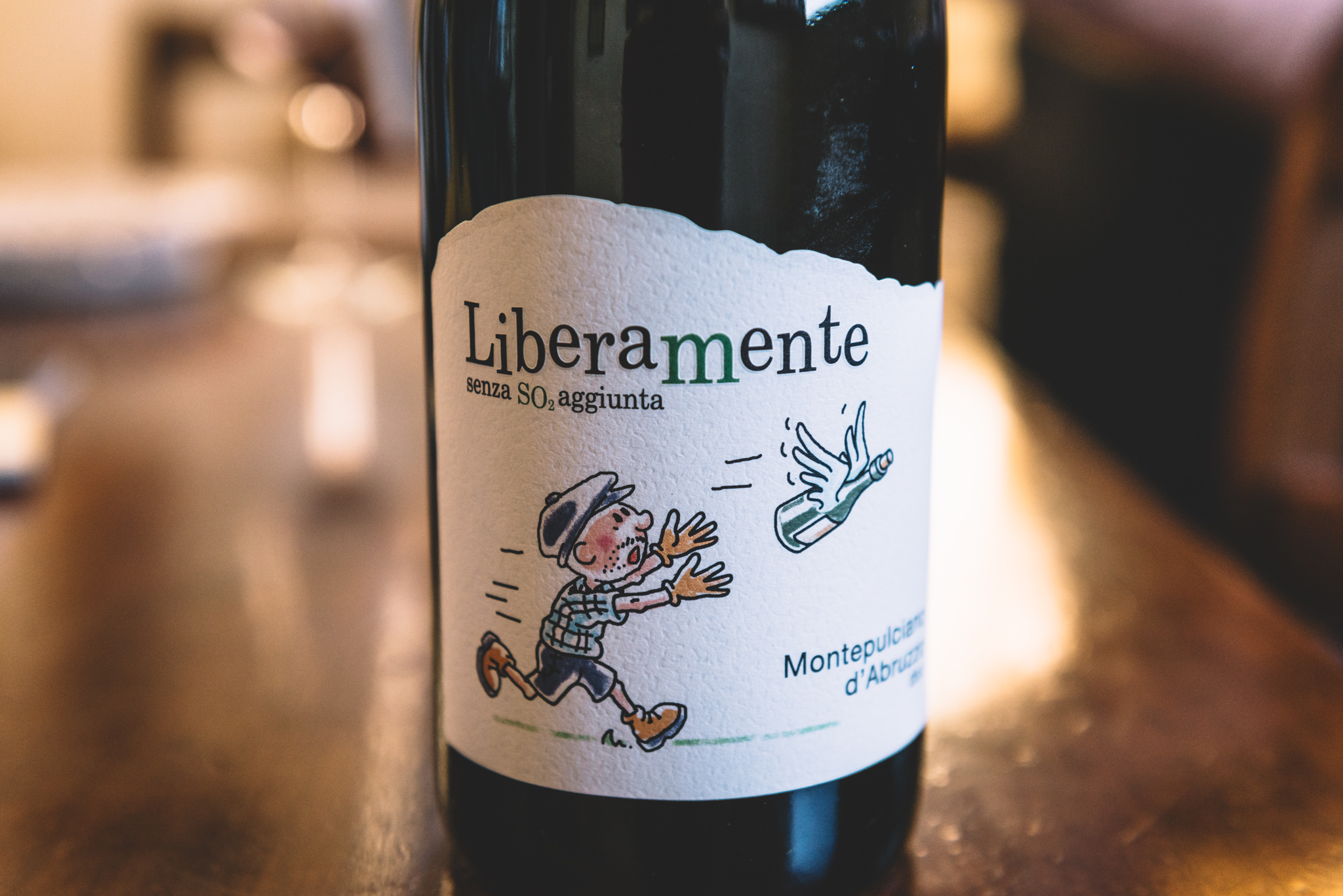
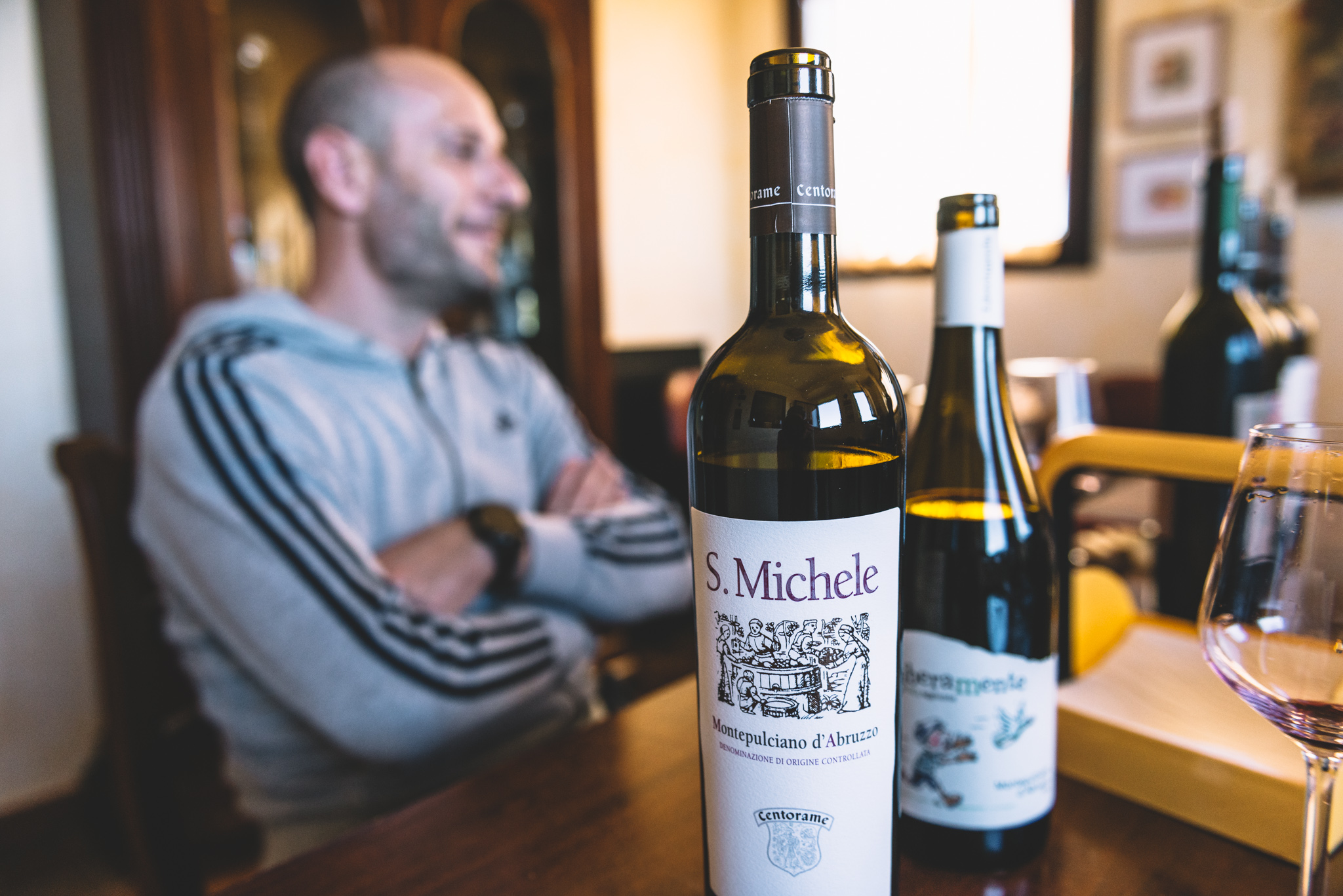
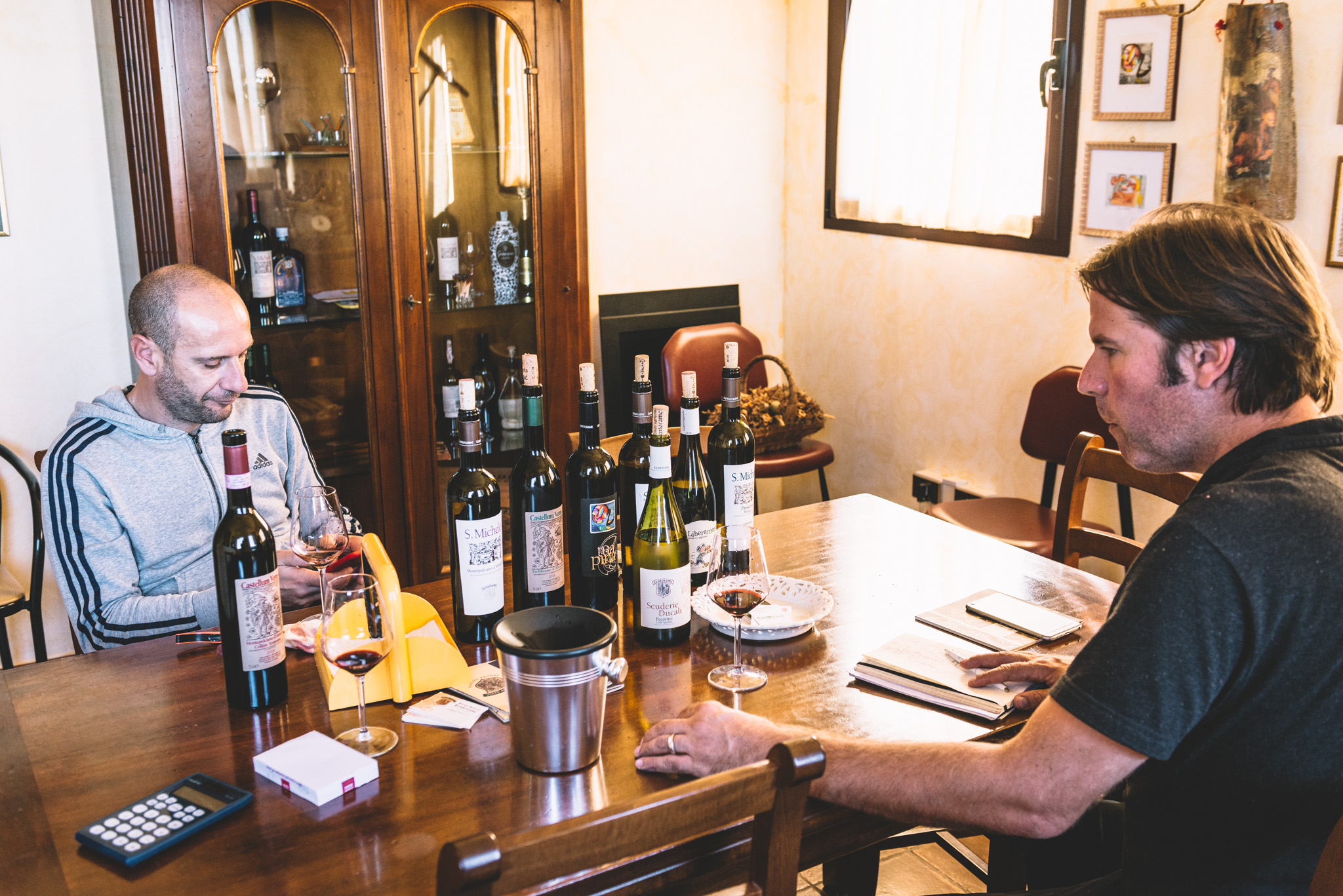
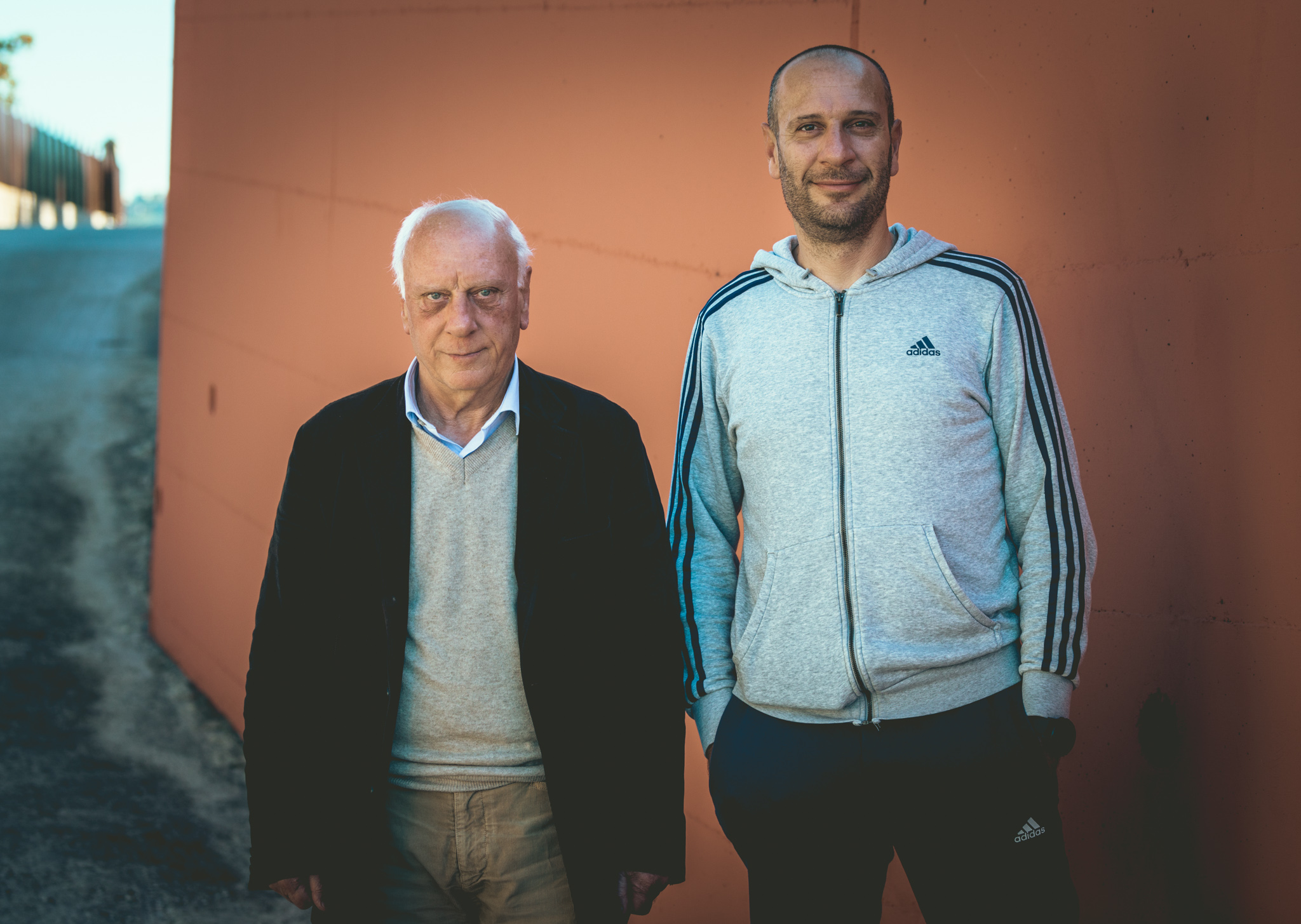
Centorame
Who: Lamberto Vannucci
Where: Casole di Atri (Abruzzo, Italy)
What Grapes: Trebbiano, Montepulciano, Pecorino
Key facts: This 12-hectare organic estate uses massive solar panel towers to create all its energy needs and more.
Website: https://www.centorame.it
Instagram: @vinicentorame
Centorame “Scuderie Ducali” Pecorino Colli Aprutini IGT
Viticulture: Certified organic
Soil Type: sandy alluvial
Elevation: 200m
Grapes: Pecorino
Method of fermentation: Cool temperature fermentation in stainless steel.
The Scuderi Ducale wines are made from younger vines on alluvial soils farther down the slope from Centorame’s hilltop winery. Certified organic, made with power from Lamberto’s massive solar panels, vinified in stainless steel. They offer a fun counterpoint to the estate’s more serious, age-worthy S. Michele line of wines.
Centorame “Scuderie Ducali” Pecorino Colli Aprutini IGT 5-liter bag-in-box
Viticulture: Certified organic
Soil type: sandy alluvial
Elevation: 200m
Grapes: Pecorino
Method of fermentation: Cool temperature fermentation in stainless steel
Lamberto Vannucci provides bright, lively, certified organic white wine from one of our favorite central Italian white grapes. Pecorino has verve. It can have aromas that border on tropical fruit (lychee, passionfruit) but to me the boxes taste like orange rind, Meyer lemon, and a little apple skin. Serve it with seafood!!!!!!!!!!! Drink one glass per night for 31 days, you abstemious and frugal soul. - JM
Centorame “S. Michele” Cerasuolo d’Abruzzo DOC 5-liter bag-in-box
Viticulture: Certified organic
Soil type: Clay Limestone
Elevation: 200m
Grapes: Montepulciano
Method of fermentation: Cool temperature fermentation in stainless steel after destemming and 17 hours soaking on the skins.
Darker than the Adriatic Sea, riper than a raft of glou glou hipster reds, this 100% Montepulciano rosato has aromas of candied orange peel, ripe red apple, mulberry, hyacinth, and rose hip. So much flavor! And quite dry. Certified organic. Perfect for Boxcarr Handmade Cheese robiola. One that you can smoosh a little, an ashy one.
Centorame “Scuderi Ducale” Montepulciano d’Abruzzo DOC 5-liter bag-in-box
Viticulture: Certified organic
Soil type: Clay limestone
Elevation: 200m
Grapes: Montepulciano
Method of fermentation: Cool temperature fermentation in stainless steel after destemming and 17 hours soaking on the skins.
Take one to an outdoor barbecue grilling situation. Toss one in the ice chest next to watery domestic pilsners of dubious provenance. Dark but not obtrusively tannic, this is a burger red, in abundance. Bag-in-boxes can come from moderate-in-size certified-organic family farms! Centorame uses solar panels, too. Checking quite a few boxes with this purchase.Satisfaction, one glass at a time. — JM
Centorame Cerasuolo d’ Abruzzo DOC
Viticulture: Certified organic
Soil type: Clay Limestone
Elevation: 200m
Grapes: Montepulciano
Method of fermentation: Cool temperature fermentation in stainless steel after destemming and 17 hours soaking on the skins.
Darker than the Adriatic Sea, riper than a raft of glou glou hipster reds, this 100% Montepulciano rosato has aromas of candied orange peel, ripe red apple, mulberry, hyacinth, and rose hip. So much flavor! And quite dry. Certified organic. Perfect for Boxcarr Handmade Cheese robiola. One that you can smoosh a little, an ashy one.
Centorame “Scuderie Ducali” Montepulciano d’Abruzzo DOC
Viticulture: Certified organic
Soil type: Sandy alluvial
Elevation: 200m
Grapes: Montepulciano
Method of fermentation: Cool temperature fermentation in stainless steel.
Scuderie Ducali comes from vines that Lamberto planted on alluvial soils farther down the hill from his cellar. This wine is remarkable to me. Lamberto captures everything to like about the fruit character of Montepulciano, and presents it on a lighter frame. I’d like to blind taste it sometime alongside comparably-priced central Italian Sangiovese. I think there are flavor similarities. — JM
Centorame “Liberamente” Cerasuolo d’Abruzzo DOC
Viticulture: Certified organic / no sulfur added
Soil type: Clay-limestone
Elevation: 260m
Grapes: Montepulciano
Method of fermentation: Temperature-controlled stainless steel soft crushed and macerated on the skins for 16 hours
This rosato is 100% Montepulciano from a four hectare parcel of cordone speronato vines, planted at a density of 5,000 plants per hectare. Centorame harvests very late in the season by regional standards. Hand-harvested, 100% destemmed, the contact to skin is limited to under a day and fermented in stainless-steel tanks and released the spring after harvest.
Centorame “S. Michele” Montepulciano d’Abruzzo DOC
Viticulture: Certified organic
Soil type: Clay Limestone soil, 4 hectares 5,000 plants per hectare with cordone speronato vines.
Elevation: 260m
Grapes: Montepulciano
Method of fermentation: Stainless steel tanks, 100% destemmed with 20 days of skin contact. Aged one year in steel tanks then one year in bottle.
Centorame harvests very late in the season by regional standards. From high, hilly central Abruzzo, near Atri. Lamberto Vannucci started this certified-organic solar powered farm. He makes small amounts of remarkably smooth, ripe Montepulciano. The textural appeal of this wine is significant. The flavors are honed and graceful, not the commonly held perception of this remarkable variety. Serve with spicy pasta Amatriciana, or yakitori-style meat on a stick. — JM
To arrive at Centorame from the coast you wind up and up and up. You’ll probably get lost. This journey is the best way to understand how wines made in the Colline Teramane part of Abruzzo are fundamentally dissimilar to greater quantities of Montepulciano d’Abruzzo and Trebbiano d’Abruzzo made to the south on flatter fields.
I like tasting wine at Centorame. Lamberto Vannucci’s father is always present, quiet but affable, the tasting room looks out over Centorame’s vineyards and also has a window into the winery. It’s a simple, calm place, really nice for thinking about wine. And Lamberto strikes me as a kind, very decent person. We aren’t friends, and our time together has mostly been limited to discussions in vineyard and cellar. But first impressions are what they are. I’m convinced the motivations here are to make great wine evocative of Casole. Lamberto’s farm has an awesome location, and I think he is the right individual to get the most from it.
He started Centorame in 2002 with 3 hectares. Lamberto’s father had been active on the farm beginning in 1987, on land purchased by his father 20 years earlier. But Lamberto started wine bottling activity, and each year he plants a little more: now there are 10 cultivated hectares. Also there are old olive groves and a one-hectare cherry orchard. All in all, I like the look of the place. Nice hillside plantings, plenty of evidence of natural farming methods, attention to detail, craft. Centorame borders an important nature reserve, protected “badlands” formed by water eroding down the area’s steep hills. Large stands of solar panels loom over one of Lamberto’s fields. They look like full-scale props left behind from an Empire Strikes Back outdoor battle scene. They are impressive.
Centorame is a busy farm. Look closely at the place and evidence of the bustle of activity are everywhere. Details have been attended to. There is evidence of recent plowing between the rows of Montepulciano, Trebbiano, Pecorino and recently-planted Passerina. No chemical fertilizers are used at Centorame, only cow manure. Most of the vines are trellised to cordone speronato, planted to a density of 5,000 plants per hectare. Close to the winery is one parcel of 30-year-old Trebbiano that is still grown on the old, low-density pergola Abruzzese. This method of growing is solidly out of fashion, but in hot vintages the extra space lessens the impact of radiant heat retained by stony earth on the vines, keeping the wines moderate in alcohol and fresh tasting. I like seeing the pergolas, and in my experience they can produce enjoyable wines.
Vannucci believes in “using slow, good machinery that respects the grape.” All of the fruit is estate-grown and hand harvested in small baskets, from parcels quite close to the cellar. In regions that can be warm at harvest (like Abruzzo) this does matter. It is better for the eventual wine if little time passes between fruit being picked and finding shelter in a cool cellar.
The cellar is remarkably, shockingly clean. Each parcel of Vannucci’s estate is vinified separately, then selections are made at the end of the process to create a final blend for Centorame Montepulciano d’Abruzzo, Trebbiano d’Abruzzo etc.
To the stranger, unstudied in local lore, there isn’t much to see in Casole. Lamberto drives me through town after our (hair-raising at times) tour of his steep, muddy vineyards. Lots of paintings from a prominent local artist have been hung on the streets and alleys, a nice idea and dose of the unusual in this tiny stone town. He is proud of this work, and clearly enjoys the idea of an outdoor gallery. Maybe it suits the mindset of a farmer.
I feel like Lamberto Vannucci grabbed the ball and ran with it. He has done everything possible to make the right wine in his homeland, and Centorame silently asks me the question “Are you going to take this project the last five yards?” I’m glad to join this team, to partner in our small way with work of this caliber.
